#I’m so happy with their expressions
Text
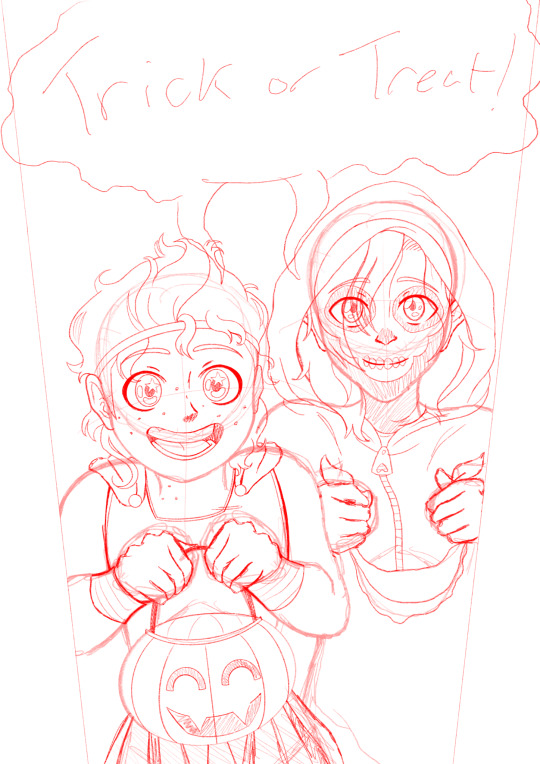
My Halloween OC WIP
#I don’t usually post WIPs because of how long it takes for me to finish my art but I’m so happy with how this came out I had to post#Sebastian is dressed as Hercules from the Disney movie#because he’s Greek and a demigod so I thought it’d fit#and Scorps is the Grim Ripper because… let’s just say he’s had a run in with Death in the past#this is an AU of them as kids and they’re happy#I had the idea of Bastian being Rapunzel because they share a backstory#but no way would Sebastian’s mother allow her son to wear a dress#do you like it?#I’m so happy with their expressions#wip#art wip#original characters#halloween art#halloween#trick or treat#sketch#doodle#zodiac ocs#art
3 notes
·
View notes
Text
every prehistoric human reconstruction has me thinking “I want to smoke weed with this bitch”
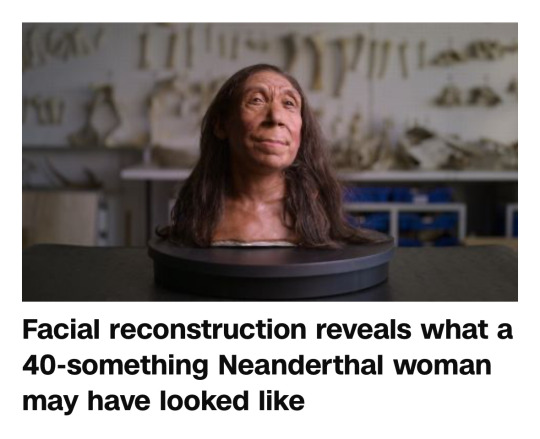
she looks like she would have been an awesome neighbor, like she would have loved menthols and called me baby
#I’m glad they started giving anthropological reconstructions happy expressions#it makes them so much more human#the blank stare they used to do made it hard to fathom their lives
22K notes
·
View notes
Text
Falin who cares too much and too little - analysis
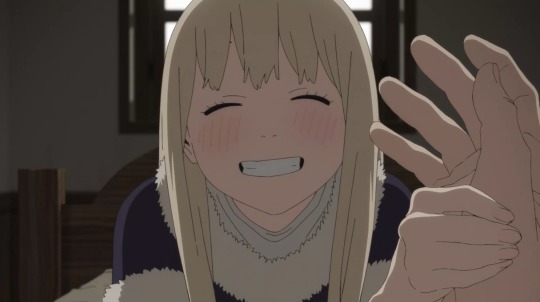
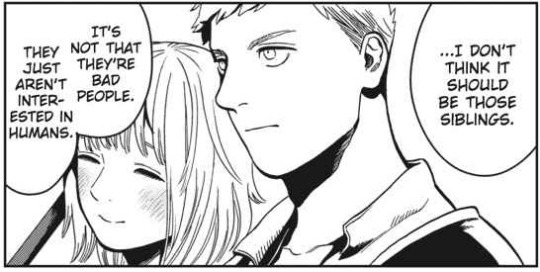
Been stewing on Falin thoughts for a while, I know I have an interpetation on her that differs from many but I’m jumping into the fray. I think there’s a lot to be said about what we do see of Falin.
This shorter Falin analysis I made is pretty much essential prior reading. This analysis mainly explores her complex relationship with caring and so it’s sort of structured in two halves, with Faligon at the crux of it all.
Falin cares too little :
A lot of people assign Falin a people pleasing mindset and I… Don’t agree. We never see her care at all about people in her town or at the academy not liking her.
We do see her worrying about what people think of her… ONCE. And Laios comforted her, told her they didn’t matter and she should be proud of herself. She latched onto that hard. That’s why this scene was so important to be included during the dragon fight, relationship-defining; it’s always been them against the world. She grew to not care what others thought, to only focus on her close loved ones. No one else matters.
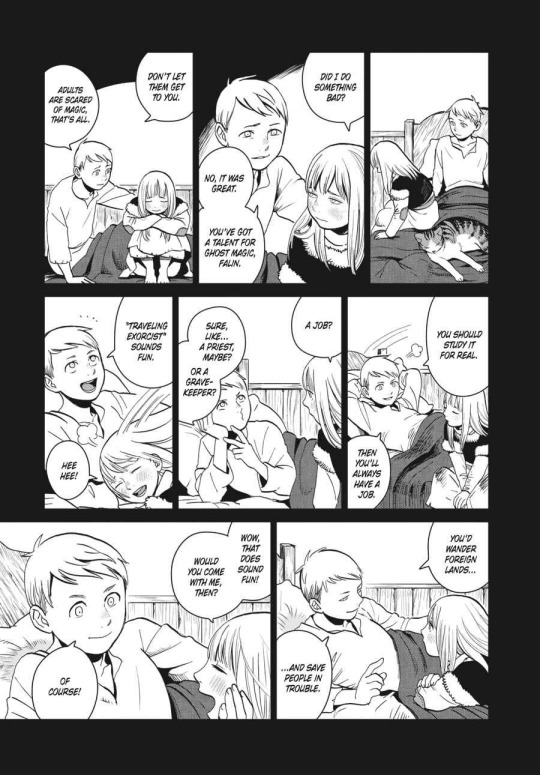
Laios’ words were her world. Her older brother who taught her how to feel comfortable with herself, who told her, you’re great, others are the ones in the wrong to not see that, I’ll always be with you, always be there for you. Older brother who always made great plans, who always knew more, who was better at wrestling to name the dogs, who she has always idolized.
Laios who always spoke of traveling the world, to which she always said she wanted to follow. And she would, she’d follow him even if it meant leaving the academy and all she knew behind, she’d follow him to the ends of the world, and that’s what she did.
She didn’t care about showing to her classes or keeping up such appearances, she doesn’t even think of toning down her jumping into bushes when Marcille recoils, etc. She acts like an obedient pawn often, to her parent’s directives and then following Laios around no matter what he decides to do, but I don’t think the motivation is people pleasing, rather it’s being with & caring for her loved ones, and her go-with-the-flow attitude enhances the impression. Not that it’s as simple as that, mind you, but let’s talk about this for now.
Falin is perceived as selfless because we, the audience, have our perspectives revolving around the main people in her life (Laios, Marcille). They’re the ones she’s devoted to and people who care about her back a lot too, but to people like her classmates or the towspeople she probably must have seemed like someone who didn’t care about the people around her or her surroundings a lot, who just went on alone and did her own thing.
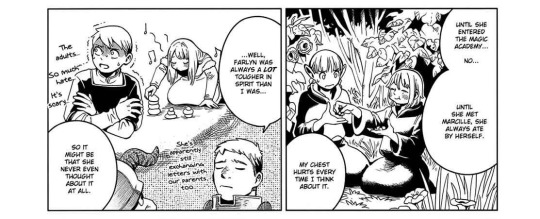
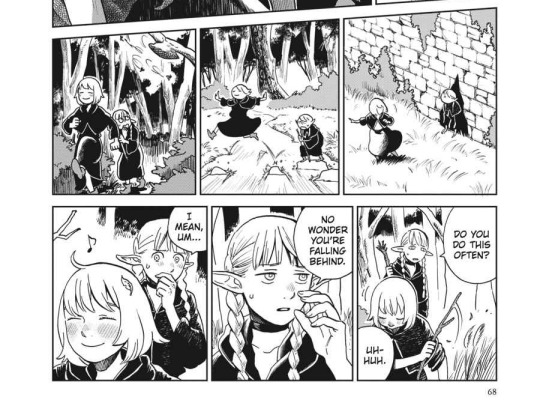
What matters to Falin? From what place does her kindness come from? Is a part of her keeping up appearances?
And I think that’s the point, the horror of Faligon as well, that we can’t tell just how in control Falin the person is as the chimera (because we are shown that she’s in there, we just don’t know at what degree), that we don’t know her enough to be able to tell when she’s at her most genuine, her most raw. That even if you do settle on none of her being present as Faligon, we have to at least consider it, consider that she may be able to do something like this and have a part in it, brutal and uncaring. That even the lenses we see her through, the people who love her, may be unreliable.
And this is what’s very interesting about her too, she truly is so idealized by people around her as a saint. She’s so good and kind and caring to everyone etc etc etc. Laios, Toshiro and Marcille all see her as the paragon of goodness in the world. More cynical characters like Namari and Chilchuck have more layered opinions on her, the latter finding her somewhat unnerving because he can’t read her well. But then with that one flashback scene we see that… Her priorities are intensely focused on Laios and Marcille, she doesn’t care all that deeply about anyone other than them (+ maybe her parents). The rest of the party is in the same danger here but only Laios and Marcille who she’s speaking to get the special ,ention, and if they don’t cross her mind then of course she’d be ready to sacrifice strangers through a risky teleportation.
That doesn’t make her not kind or caring!! Just that greater good isn’t exactly her priority. Any means is alright if the end result is her loved ones safe, it usually takes the form of healing and caring, but we see she’s ready to fight and make dangerous calls too. To me there’s this aspect to her that she isn’t as pure and magnanimous as everyone thinks she is, both in-world and interestingly enough meta wise as well, and there’s something interesting to that.
People pleasing implies a need to be liked, needs for the motivation to be that. A yes-man, etc. But if we analyze Falin, her general kind, smiling demeanor is more a matter of passivity I yhonk. Conflict avoidance is easier, so she’s friendly and hopefully things’ll be smooth sailing. It’s easy to be kind to classmates even if they act wary and rude if you don’t care about what they think either way. Of course she prefers good things happening to people over bad things, she is genuinely kind, but I think people tend to assign her a very grand altruistic way of life when to her the motivation is pretty self-centered. She doesn’t do what she does because she loves them, but because she loves them.
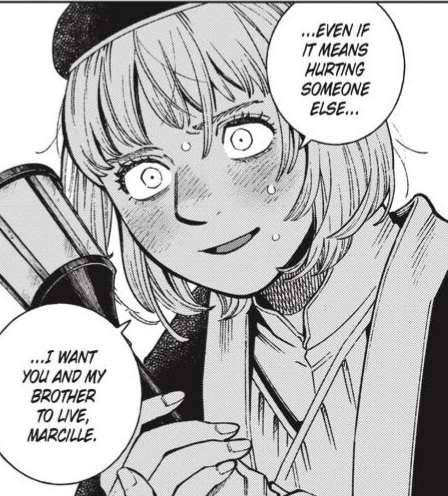
One situation that’s interesting to dig into for her way of thinking, and what I’m trying to get at, is Shuro’s proposal to her. I’ve seen people saying she hesitated because she didn’t feel comfortable saying no even though she wanted to, "I can’t say no, I don’t want to hurt him", something that sounds sensible and familiar, but it’s actually canon in the Adventurer’s Bible that the reverse was the case, that she didn’t feel comfortable saying yes. Because the offer was tempting, but it’d have been a loveless agreement on her end.
And it makes sense she’d want to say yes too, like we see with the Toudens, marriage is very much a political strategical economical thing in their village, there’s even a bit on it on Laios’ Adventurer’s Bible profile about dowries, and both siblings were engaged very early. They lived poorly for a long time, it’s an enticing idea to marry rich, to have not only yours but your brother’s needs met forevermore easily, which at one point in their careers was their main worry and goal. Why shouldn’t she accept a life of leisure and wealth handed to her by a lovely friend?
So her hesitance was "yeah that’s convenient for me, but where it’s everything to him and heartfelt I’m able to be detached because I don’t care about it that much… Can I do that? I’m not reciprocating, not saying yes in the way that matters. Can I do that to him?"
Very caring even though it’s not what you’d expect, isn’t it?
And central to my analysis, where I’m going with this is, I feel like that’s the thing with her character, that she doesn’t feel as strongly as she "should" sometimes, or feels a different way than she "should", or at least that she feels that way and others say she does.
She didn’t mind suddenly leaving the academy, leaving Marcille behind and not seeing her for 4 years. She acted like it was no big deal that she sacrificed herself after getting resurrected after the red dragon fight. And in both those cases it upset the people around her greatly that she didn’t seem to get why it was such a big deal, didn’t seem to care about how they’d experienced her choices.
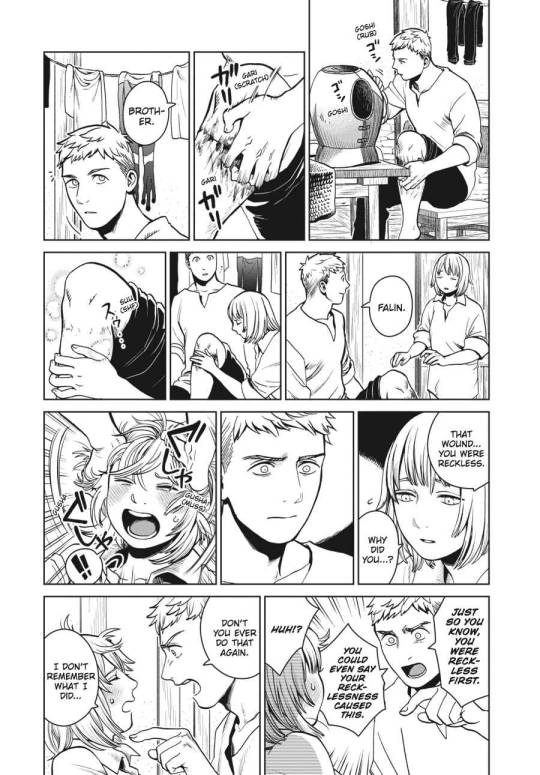
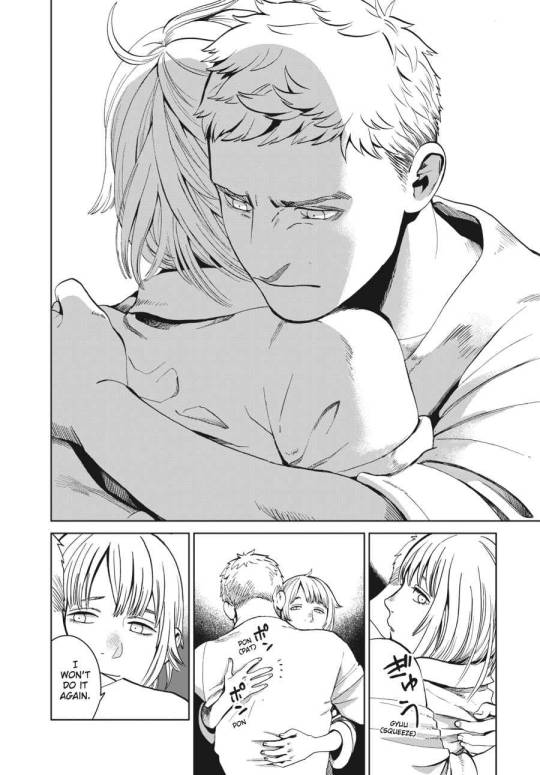
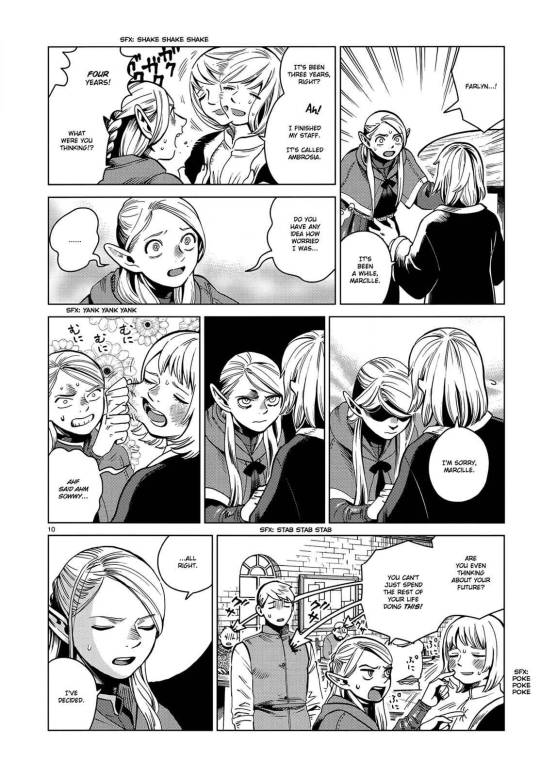
So it’s a tendency… And it’s not that she doesn’t care, it’s just that the way she measures what’s good for the ones she loves isn’t the same as what they themselves think it is (like Laios and Marcille not wanting to be apart from her). It’s an overt but quiet kind of care, it’s doing things like following them around and making sure they bathe and have a meal, even if that means she has to be dragged into misery too.
So yes she probably would know "not caring enough/the right way" is one of her perceived flaws, and that informs how she tries to handle her response to Shuro’s proposal. Her not wanting to accept like her first gut instinct, is because she’s thinking about reciprocity, about if it’d be right to go into this knowing that they have different priorities and she might not be able to keep up with the type and amount of emotions he wants/expects from her.
And that’s a big part of her character isn’t it, having expectations pushed onto her. Her trying her best, but in her own way that may seem odd or even unfeeling. Not unlike when she exorcised the ghost as a kid too, unblinking and matter-of-factly, and not seeming to understand why people stared the way they did.
Even though she answered his proposal only post-canon, she’d been pondering it for a while even pre-canon and the Adventurer’s Bible explanation was released midstory, so I’m hesitant to assign her much growth about her hesitation and what I went on above, since she still didn’t react "right" with Laios after the red dragon fight (even if she apparently doesn’t remember sacrificing herself) and put herself in that situation in the first place. She hasn’t finished her arc on that flaw of hers is what I’m saying, she for sure still has it, but I certainly think her thoughts on Shuro’s proposal shows awareness, both of herself and social.
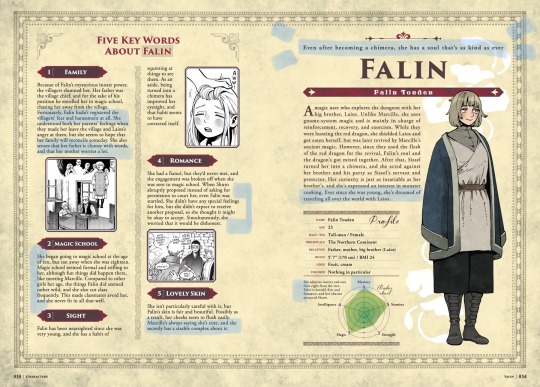
And awareness is a big analysis key word with Falin, especially here it can be hard not to conflate not caring with not knowing. How socially aware is she?
It’s rather layered, because canonically she wasn’t aware of her ostracization in her hometown at all, and we’re not sure if she knew Shuro was interested in her before he proposed, but she generally seems more socially aware than Laios. She tags along on his caravan job to make sure he isn’t being mistreated (though doesn’t ask he get a salary), she catches social faux-pas more easily like in the genderbend magic mirror omake with Shuro, and interestingly enough she’s very good at empathizing with her parents and understanding their perspective. We see when she’s worried about Marcille coming that she does know about propriety and how appearances shape impressions. Being a chief’s daughter must at least have taught her a thing or two on that front.
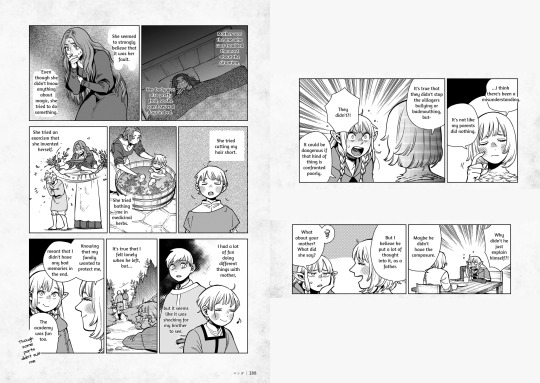
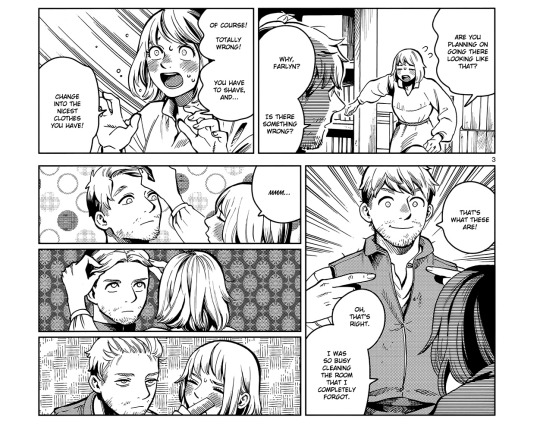
She never stands up for herself, but when it comes to defending others she worries, strategizes and explains.
And this sort of understanding is part of why I think she’d notice the expectations pushed onto her like I was saying earlier, notice how she makes people feel when she’s careless. But if she changes anything about herself in response to noticing is for her to choose, and generally I think it’s a sort of inbetween of yes and no: that she becomes more complacent but also more reserved, complying but by hiding more of herself passively. She’s not sure wether to accept or reject Shuro’s proposal, doesn’t want to lead him on? She’ll just be taking a while to silently consider it, try to keep things as they are for the time being. The third, less conflicting option. She doesn’t feel heard by Marcille who keeps infantilizing her? Just bear with it. Retract yourself emotionally. Settle for it.
We see that when she was young she had a tendency to not read a room, and I think that’s here too. She doesn’t get why her nonchalance upset others but that doesn’t change that she doesn’t want them upset or hurt, so she tries, albeit in maybe a roundabout way. She always had a hard time deeply connecting with people, often keeping herself some amount of emotionally distant: erasing herself from the equation, from the two-way trade that relationships are and making it a onesided thing instead, where all their needs and emotions are directed towards her but she only lets out a bit of her own show. She takes everything upon her and deals with it and tries not to give others this same burden, though not on a conscious level, it’s just that she’s learned growing up that she doesn’t have much agency.
Like I went into with my analysis linked at the beginning, I think Falin is used to just taking what she can get and not asking for more, when it comes to social bonds.
She’ll take spending time with her mother no matter what it is they do, she’ll follow Laios to the graveyards and stick by him even when he’s pushing her away (because he doesn’t want her borrowing his book or "No copying!" or such). Her father was always distant, cold and uncommunicative, her mother was considered sick from anxiety and the exorcism attempts were the main way they spent time together, at dinner tables there were only her and Laios.
The dogs picked on her too even if she loved them— And so did the townspeople, maybe that being normal to her at home is why she didn’t notice the ostracization she suffered.
She’s always been the last to be asked about decisions or what she wants, never asked to play with at recess, neither her father or Laios asked before sending her to the academy or leaving the village.
At home, in the hierarchy she was considered to be below the dogs by the dogs themselves, as someone they can disrespect. Dogs learn from example and behavior, so this means Falin must have been pushed around a lot, and that the family didn’t try hard to rectify the dogs’ misconception, likely worsened by Laios regularly wrestling with her as a competition.
So for example when Falin showed Marcille food, it was her way to implicitly ask to have lunch with her without voicing that question, without daring to take up space. Someone’s presence isn’t something you ask for, it’s something that’s bestowed upon you, you can follow them around but you can’t ask them to stay or to come with.
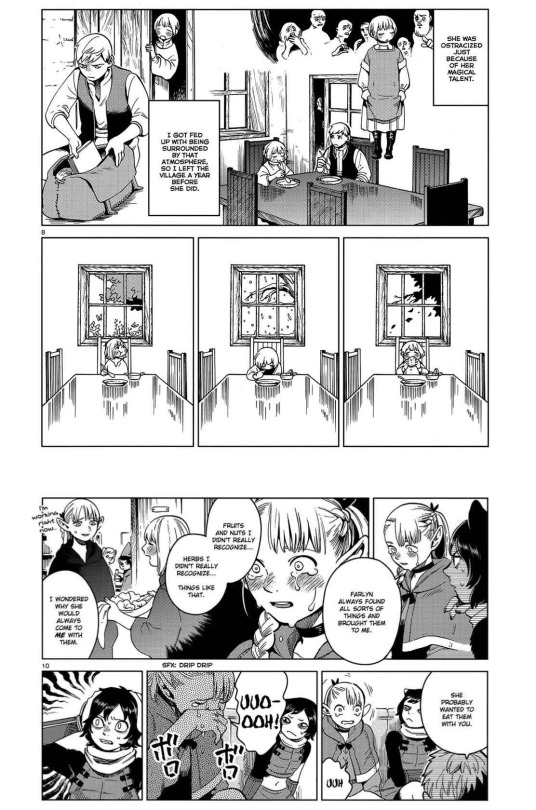
She’s used to her needs and wants not being listened to, so she’s learned to have less wants. Caring less about herself, caring less about other people beyond her safe zone, was a defense mechanism in part.
She has a sense of learned helplessness too, like how when Marcille came to take her away from Laios, even though she didn’t want to leave with Marcille it felt so determined and unshakable to her that whatever Marcille decided Falin would have to comply with.
And still, it’s the "marrying you would be awfully convenient if it wasn’t that I’d feel guilty for not loving you back, the way you wanted me to when you proposed to me" and the "I don’t regret leaving the academy and leaving you behind without goodbyes but I’m sorry that you’re so much more upset about it than me". It’s the guilt of not loving people back the way they want to be, with the same intensity or fervor.
It’s the autism it’s the aroace of it all, it’s the emotional stunting and confusion but the pit in your stomach telling you you did something wrong again. The no object permanence even for people you love even for 4 years, it’s the feeling like you’re somehow at fault for someone having fallen for you and not knowing what to do with any of it.
I’m not joking btw it isn’t uncommon for autistic people to not see their close friends for a long while, not having missed them all that much and for that to be really hurtful for the other if they notice/ask about it. "Hiii bestie! Oh umm you’re uh more emotional about this than I expected, hopefully you won’t feel alienated by me not feeling as intensely about it…"
So… Yeah. I think she thinks of things and relationships in a different way than most people, and beyond "good things happening to people is good" I don’t think she actually cares about people all that much. I’d argue that Laios shows more desire to connect with others and make relationships. And just like with Laios and his own issues with humans, that doesn’t mean her kindness is a lie or ungenuine or worthless!
It just means that like, well it’s pretty straightforward really, she’s not all that social and doesn’t see casual bonds as meaning all that much and whatnot. She does want to see people happy, but it’s not as much like… A conviction or goal. She’s too laser focused on a select few people. "It’s not that they’re bad people, they just aren’t interested in humans."
And sometimes it feels like people get defensive about Falin in a meta way too, like if you ever so much as imply Marcille isn’t her whole world or that she isn’t the kindest soul out there then you’re saying she doesn’t care at all or she’s evil. And that’s actualy exactly the sort of vibe I wanted to get through with my analysis above here actually haha, that she does care and she is kind but it’s not in a way that’s quantified or understood in a way that makes people feel comfortable. In a way, that makes people feel insecure because they don’t have the same logic as her, don’t show love the same.
And I think this is another stellar depiction of autism, of parts of it that feels unpalatable to many, if I’m making sense. The fandom idealizes her as well, which isn’t uncommon or surprising for the character embodying the trope of the perfect beloved to rescue.
And disclaimer, as I said in the tags I feel like the details of Falin are pretty vibe based when it comes to analysis, there’s absolutely a valid angle where she does super care about everyone always, feel free to disagree with me on the overarching angle of my analysis. There’s enough supporting evidence to tip the balance either way I think, and the reason I’ve chosen this angle is I feel it’s more compelling for the themes in Dunmeshi of idealization and being different, of desires vs wants, and because I think it neatly ties up Falin’s character arc as I’ll go over throughout the next section…
So.
Not feeling as much as she should. And……. Is this not Faligon pushed to the max?
You can’t tie down a dragon. As the chimera, she gets to just not care about everyone else and be on her merry way.
Part of it I think is finding comfort and freedom in the mindlessness, in not having the burden of feelings and connections and a consciousness (despite still ending up seeking those in a stranger, Thistle).
Like when she’s dead in the purgatory as well, she gets to just… Hang around and do whatever. Similarly to when she played in the forest instead of going to class in her academy days. That’s what freedom and peace of mind looks like to her. Why she decides to roam post-canon, if only now with the goal to find herself instead, with her mind in tow and somewhere to go back home to.
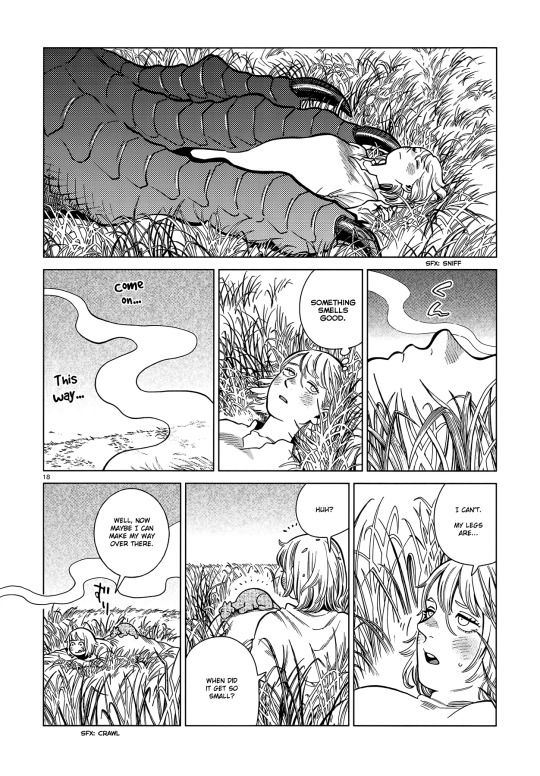
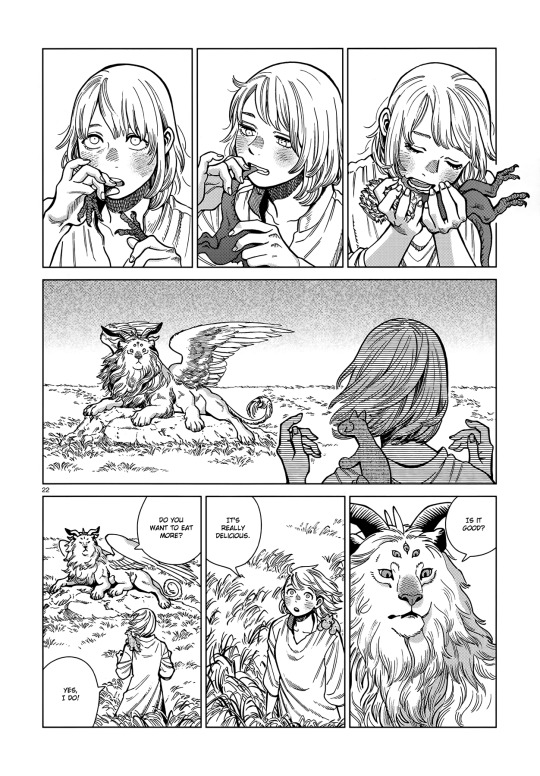
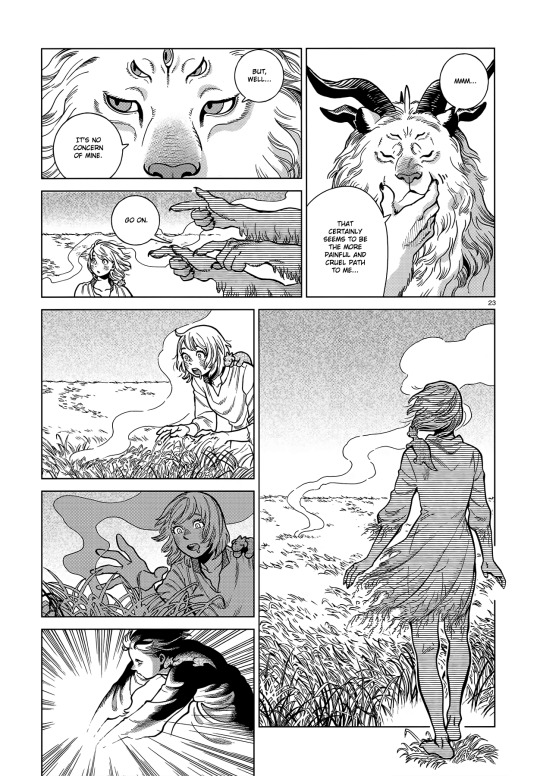
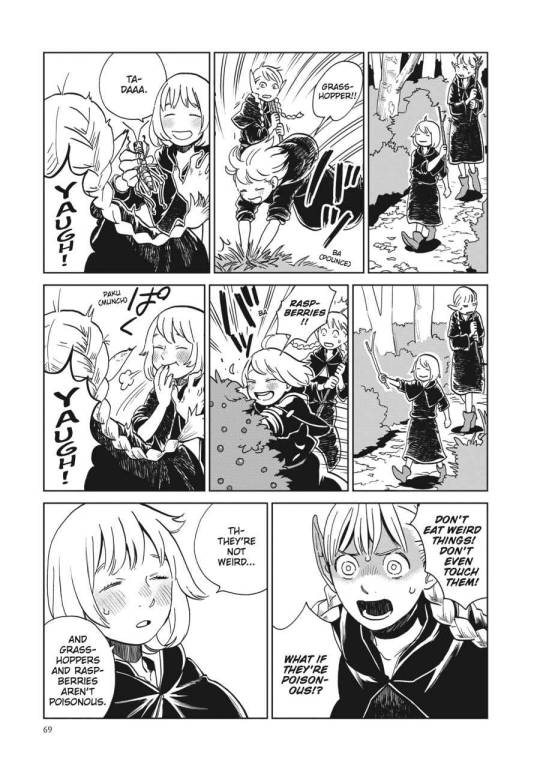
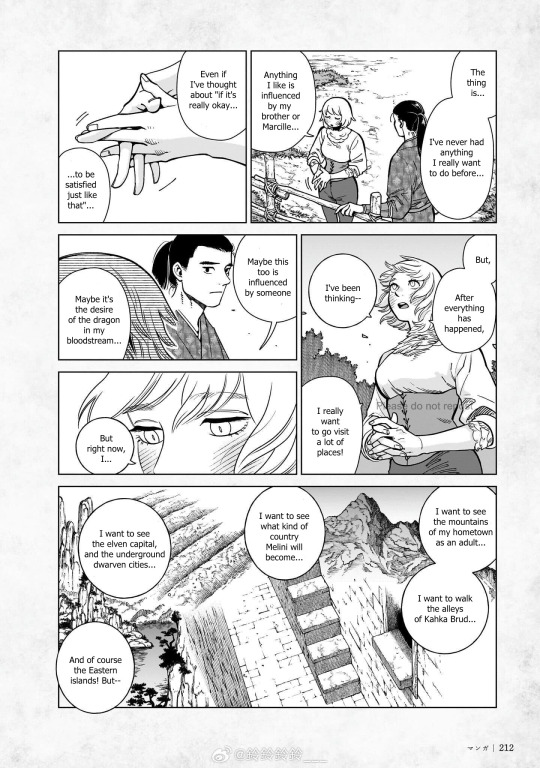
There’s excellent analytic framing out there about how of course, Dungeon Meshi has a big theme of grief and letting go, and… Falin was always a symbol narratively, idealized by characters and often underconsidered by them despite their love. It was Falin’s choice to sacrifice herself for Laios, she thought it was worth it, knowing that it would be her end. Her resurrection and the process of it intertwining her soul with a dragon’s wasn’t done with her consent, and the subsequent opening it gave her to become a chimera puppet. She’s stripped of her agency consistently, and so… It’s very noteworthy that the final choice, of wether to go back to life or to stay dead, in that purgatory scene, was up to her. And she chooses life, but I do think about her in those fields and how at home she seemed there. Peaceful, by herself in a vast calm expanse she could explore, free.
Personally, I think freedom is Falin’s own subconscious selfish desire. And though to us becoming the chimera is obviously a shackle, I think it felt like freedom to her somewhat, too.
And if you think I’m going wildly off the rails here I want to talk about Laios’ wish of becoming a monster.
And to be clear before getting into it, being mentally a monster is absolutely a big part of the appeal for Laios, it’s something that’s consistently referred to, something especially pointed out in the werewolf monster tidbit with Lycion. Right panel is from that, but left panel is from the extra with Izutsumi where Lycion talks about suppressing souls in a beastkin body, the human or the beast soul.
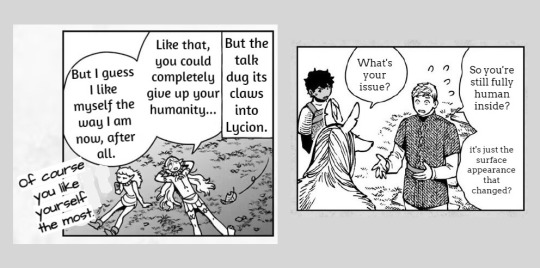
Finding comfort and freedom in being mindless, less sentient, less aware? While being unaware in her hometown might have saved Falin a lot of heartache although perhaps stunted her emotional growth, it’s always been Laios’ curse.
Actively, through his choices, he seeks to grow closer to people, to form deeper bonds, to understand and be undertood, but… On a deep seated level, what he desires is to leave humanity and civilization behind. He has an irrational hatred for humans, born from the trauma of ostracization, being different, being beaten up and rejected consistently through his life. Running away from problems is easier. He wants to be free from being a social animal from a social species who has deemed him the black sheep, he thinks it’d be simpler to just leave it all behind, people and his own humanity.
At its core, to Laios becoming a monster is a power fantasy, a coping daydream of "if only I could be strong enough to never be hurt again, the power to destroy anything I want, the power to go somewhere better, if only it was possible for me to never feel hurt again. If only I could be someone, something, that can never be hurt". "If there’s someone you don’t like, you can gobble ‘em up in one bite. If you could fly, you’d be able to leave this village right now." It’s a childhood fantasy, from a deep sense of being misplaced and a desire to be able to stand fearless, thinly covering up resentment that Laios represses.
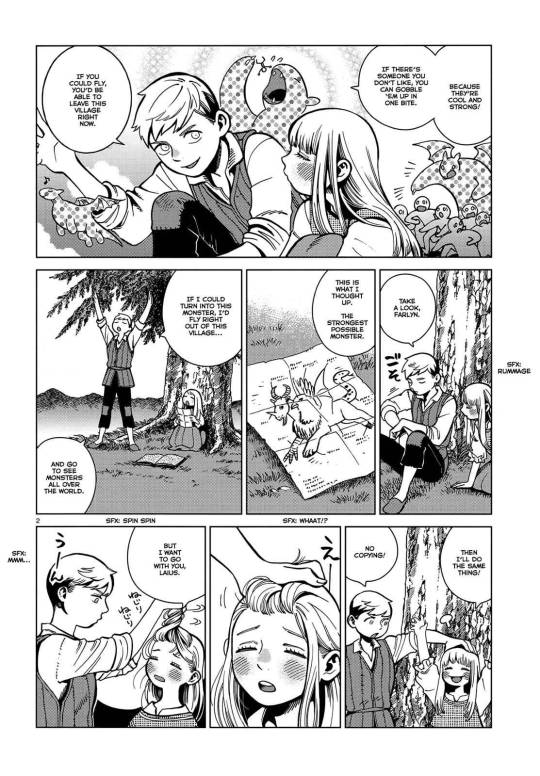
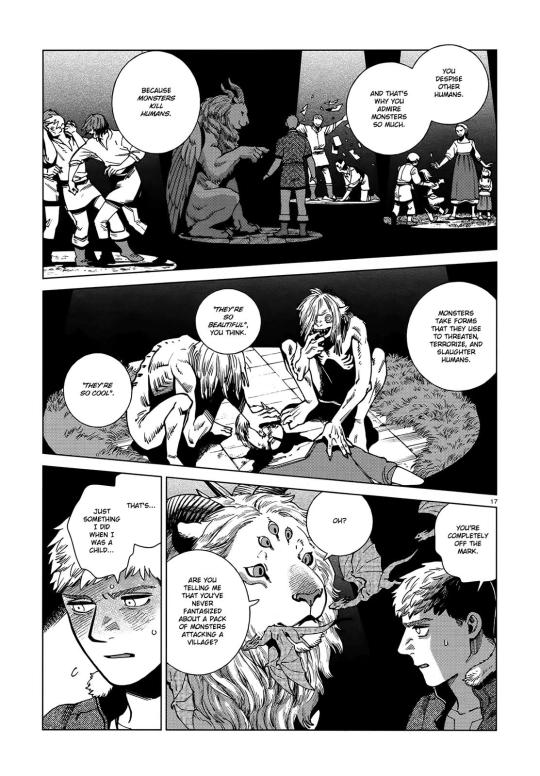
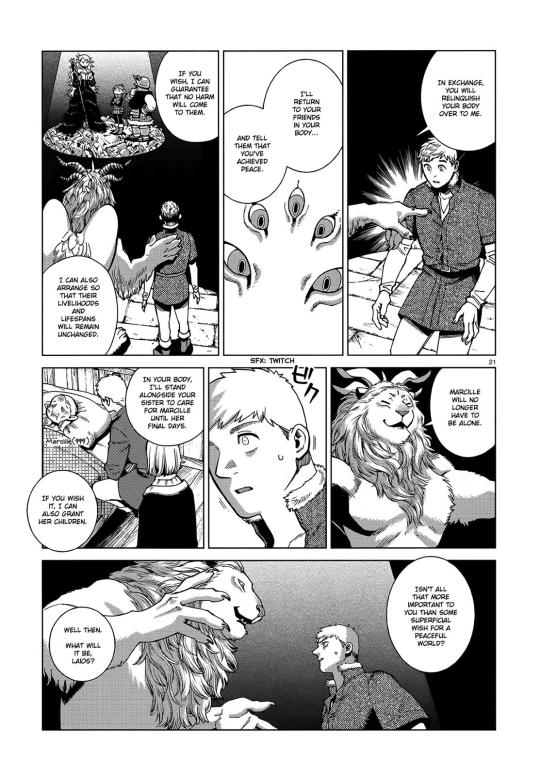
But you’ll notice, when the Winged Lion is enticing him in the last page, even now with his lifelong wish of becoming a monster on a silver plate, he still cares about his friends. He still has that sense of responsibility to his friends, doesn’t want to leave knowing they’ll be in danger and alone. The offer that his friends may be left unharmed is already good, but Laios also visibly flinches when the Winged Lion offers to specifically care after Marcille and rid her of her biggest fear. Laios’ care runs that deep. Not unlike with the succubus, he resists temptation until he gets reassured that everyone will be okay. But see, what he desires isn’t to stand alongside Marcille until her last days, it isn’t to stay and see how well his friends will live, it’s to go. It’s to leave. It’s to fly away, a monster both in body and mind. He wants to be free from caring here, wants to not have to worry about his friends, wants to just go do his own thing, but for that he needs to feel safe in the belief that said friends will be safe even without him being there to see it, because despite everything else he cares, he does. It’s again that dichotomy about caring and wishing you didn’t, or not caring and wishing you did.
In the end, it’s Falin who achieves that wish. Both by becoming a chimera during canon, and by going traveling post-canon. In the latter, being both free of human relationships as something chaining you while still being uplifted by them, by the knowledge that there are people out there you love and that love you.
It’s a theme that can also be connected with Marcille, because she gets anxious over people she loves getting out of her sight, worrying they’ll get themselves killed, that time is passing while they’re away from her.
But before she can get to the point where she can both have her freedom and being uplifted by her social bonds, regaining both her individuality and her connections, she has to get a taste of just one at a time. Before they can find balance in her life, she has to see what it’s like to have what she’s never had on its own. Unapologetic freedom, and power.
No one can blame you for not caring enough or caring right if you’re a fricking dragon!!!! You make the rules when you’re a beast and you can just… Fly away. From anywhere, from anything. And if a dog bites you you can just crush it. Instead of being pushed around by the dogs because you’re at the bottom of the hierarchy, you’re now at the top, the one with the power to be heard and do what you want without consequences.
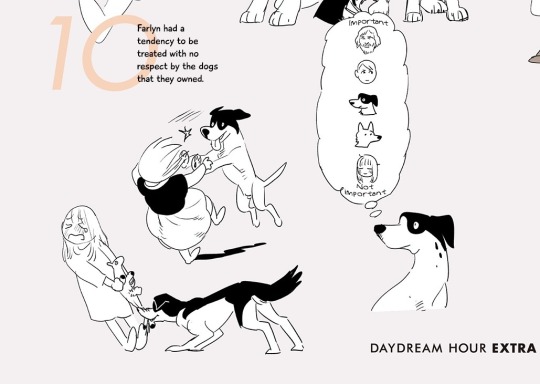
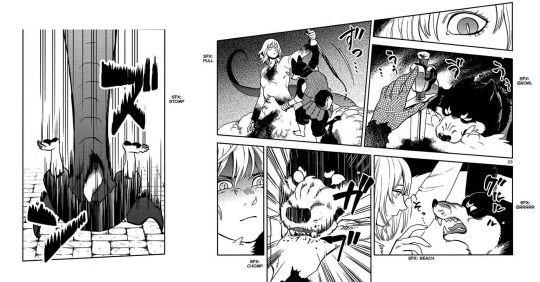
I think she’s on autopilot. I think she’s on autopilot a lot of the time, even before being a chimera, and it’s partly why her will is so weak compared to regular dragons. (Again, read my shorter analysis.) It’s familiar to slip back into the role of following someone around unquestioningly. And that’s what is weaponized when she’s a chimera, that instinct she’s been nursing all her life to unconditionally support, defend and follow someone.
Only now, that someone doesn’t matter in itself, only the symbol of it. She doesn’t mind, either way is fine. Her will is weak after all, because she’s trained it to take as little place as it could.
Falin cares too much
She spends all her time caring for Laios and Marcille alternating that none of her care and emotional energy is left for others, including herself. So she had to get relieved of all of that for a bit, becoming the chimera so she could reset and recenter and remember that she, too, indeed, is there and an important part of her own life.
So you’re probably seeing the duality I’m talking about here, Falin is very self-sacrificial but for specific people in ways that they often don’t recognize or appreciate. She cares but selectively, both in people, putting all her eggs in the same baskets, and in the ways she cares after them. She doesn’t care a lot, but when she does she cares a lot. Falin doesn't have a lot of earthly attachments, but when she does, they're her world.
In canon her arc, especially post-canon, is to grow beyond Marcille and Laios. Her caring for her close loved ones held her back from looking after her own self-fulfillment needs. And this is what I mean when I say she cares too much; she could gain from caring more about the world besides Laios and Marcille, both lands wise and people wise. She cares too little, but her arc centers her flaw around caring too much instead.
Her pitfalls that Kui highlight over the course of the story, while of course her selflessness is appreciated for how she saved Laios and everyone, on a personal level is shown to be self-effacing and damaging. She’s undermined by Marcille, without the courage to voice her thoughts and wants, she would dedicate her whole life to Laios. And I mean, it’s text, in the response to Shuro’s proposal extra no less. And she’s so laser focused on her most loved people that she’s fine with being callous and risking others’ lives, even.
Post-canon, she needs to leave to find herself, away from them.
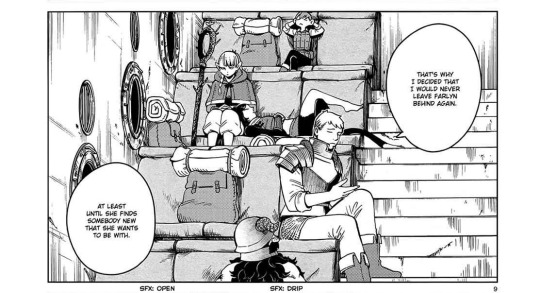
Herself. What if she wants to just be with herself for a while.
And this is me reaching but I feel like, not unlike Izutsumi who learns to feel this sense of never being alone, always having someone on your side what with having two souls, the dragon in her would make her consider herself more. She finds it easier to care after other people after all, and in the purgatory fields sequence she takes care to bring the bit of dragon left with her… Not unlike with Izutsumi, having two souls forces you to think about your identity and figure yourself out.
Besides being this sort of duo now, where if she wants to care after herself she can channel it to that other side of her too… In meta dragons are symbols of greed, and I think the bit of dragon would push her to want more and listen more to her desires, primal and self-serving as they might be. The dragon soul which warped her human body with feathers and draconic features, her image of perfection marred, her weirdness externalized in a way that’s not palatable. But she doesn’t care, about if her appearance is palatable for most people, she hasn’t for a while now, and that’s great.
Notes & nuance
I’m struggling with the structure of this post, making my points organized, concise and strong at once. It’s difficult to make any statement without going "things are generally like this, but there’s this time that this contradicting thing happened too" or "it’s ambiguous enough that you should just follow my interpretation for the time of this analysis" haha, so this is the pit where I put all the stuff that wouldn’t fit well in other places but are interesting for Falin’s character. This section is pretty separate from the main thesis of the post, it’s just more Falin observations.
The post has reached the 30 pics limit so I can’t just pull it up whenever it’s relevant but I really encourage scrolling up to read the stuff I highlighted in her Adventurer’s Bible profile if you haven’t already.
I think with the shy-looking loner type autistic kid archetype, and knowing she didn’t seem to mind others ostracizing her, it’s easy to lose sight of how she was by no means an unemotional child. In all the bits we see of her as a kid she’s bursting with energy and emotions. Canon confirms Laios leaving the village did affect her and make her lonely and she cried a lot, too.
She may not be social in the traditional sense, but she was clingy with her brother, and she also never was all that shy about who she was, wearing her heart on her sleeve.And okay. Okay okay okay. Speaking of appearances. About what I said of her not caring about what people think of her, even seeming defiant with the caravan leader… There’s one istanxe of her caring actually, and it’s about how her face blushes easily. I remembered it as being because Laios’ said it and as I rambled Laios’ words are her world, but actually it’s ambiguous. It’s only Marcille imagining up this scenario where Laios says Falin looks weird because of it, there’s no evidence Laios said or thought that at any point. And on the other hand…
Her Adventurer’s Bible says: "5, Lovely Skin. She isn't particularly careful with it, but Falin's skin is fair and beautiful. Possibly as a result, her cheeks seem to flush easily. Marcille's always saying she's cute, and she secretly has a sizable complex about it."
The phrasing makes me think the complex she has over her blushing might have developed because of Marcille more than Laios. "Marcille's always saying she's cute, and she secretly has a sizable complex about it." It could be related to how Marcille gets swept away and infantilizes her, calling her cute wanting her to wear cute feminine outfits etc. Again this feels like it relates to Falin’s struggle to be seen for who she is and what she wants to be seen as, her struggle to be recognized, having ideals and perspectives pushed onto her. Here Falin is insecure over her blushing implicitly because she doesn’t like being called cute over it, but that’s not how she wants people to see her. She doesn’t want Marcille to always see her as her 10 years old adorable friend. Like if your friend said you had puppy energy, it can be flattering, but it can also make you insecure.
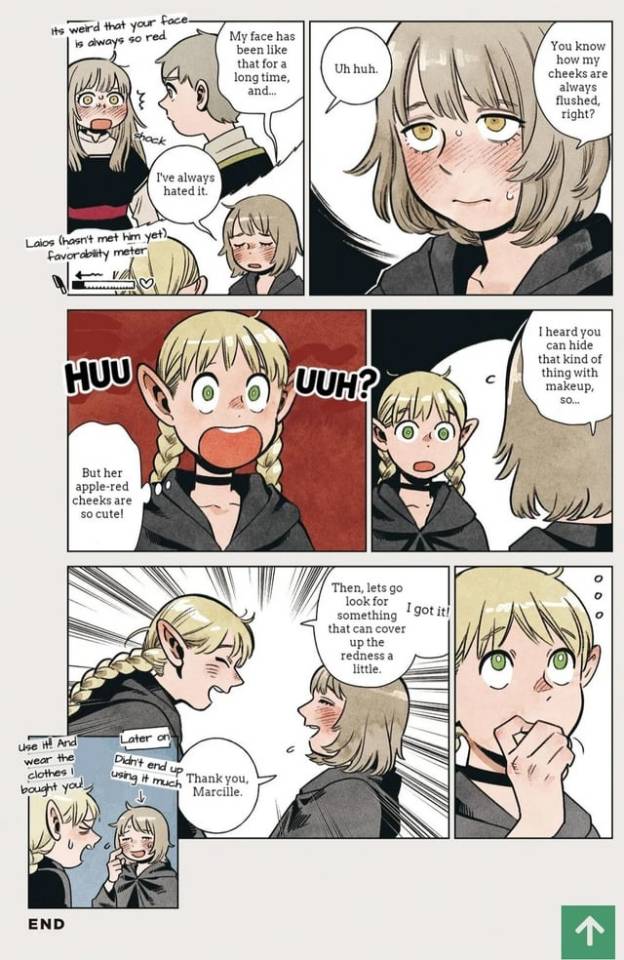
Here’s a link to what I mentioned about her being uncomfortable wearing feminine outfits. It does seem to be more about comfort than the aesthetic perse, to me. Interestingly the shirt & shorts don’t seem like they show much more skin than her beach outfit, so maybe it’s more about the shirt and shorts being tight-fitting. Like the skirts and heels they feel stifling. Again a bit with themes of freedom and not wanting an aesthetic pushed onto her.
So yes just to reiterate, I think this is more about self-affirmation and how her identity and self-image gets shown to others, rather than wishing to hide parts of her body like her blushing etc for people pleasing reasons. Makeup was a way for her to appear how she wants to and feel more confident. It was a way to take control over her own image.
She didn’t keep doing it, the narrator stating the process to be ‘troublesome’. Ultimately she still prioritizes her comfort, and it was a lot of recurring efforts to go through.
And on the topic of appearances… A friend once asked me: "Does she really hide herself or not? I keep thinking about "falin is herself first and foremost" (in her Adventurer’s Bible profile) it’s just so. Hmmmmmmmm... I just keep seeing people say she hides her real self from people when I feel like the issue is more about her charitable traits straying too far into becoming flaws but people around her dont realize that..."
Imo the thing is, I don’t think she hides her identity, but I do think she suppresses her individuality for others’ sakes if that makes sense. In the way that only post-canon does she allows herself to go see what the world is like, but that’s not personality wise it’s needs and wants wise.
And I do feel like that’s the closest interpretation of canon, she says it herself she doesn’t know what she wants because everything she’s done was always about Laios or Marcille, but she doesn’t change her demeanor or personality for others. But she *will*, like, not ask for things she wants directly, like sharing lunches with Marcille at the academy, she suppresses her wants, doesn’t ask things from people and doesn’t hope for more, hope for better. I don’t think we ever see her actively repress her personality, except like what, being more laidback than enthusiastic but I do feel like unlike Laios with her it’s less ‘appearing stoic to fit in more’ and more ‘yeah i’ll just chill until I’m needed or something activates my enthusiasm’.
To which said friend quoted: "to feel like you belong you need to be useful. when you can’t be useful the next best thing is being convenient."
And speaking of passivity… I want to speculate about Shuro’s proposal some more. Shuro and her got along well though we don’t know how much, or how often they hung out, she even saved him from a nightmare.
Why did she take so long answering Shuro’s proposal? Was it an effort to preserve or was she really just that conflicted? Procrastination probably yes, but what is the core motivation of itl Considering she ended up saying no to travel the world instead, I don’t think it was as simple as ‘she wanted to say yes for convenience’. Logically it’s what would have been best, but it’s not what she wanted for herself, but it was and still is hard for her to even know what she wants. Probably, since like she states it was a great offer and she doesn’t think she’ll get proposed to again, it’s that self-effacing tendency that yes it’d be convenient and logical, and that makes her want to say yes even if her spirit isn’t in it, because if it’s convenient then that’s more important than her feelings on the matter.
AND speaking of passivity!!! How much Falin is "there" as the chimera, just how much she’s master of her actions, is left ambiguous and intentionally so imo, but she’s for sure there & influencing the dragon’s action to some degree. Having a dragon’s foot on her in purgatory that keeps her from moving for sure visualizes how it must have been like, but there’s Falin calling out to her brother Laios, there’s the kind attentions towards Thistle that are so Falin-like, and most explicitly there’s the Adventurer’s Bible stating "Even after becoming a chimera, she has a soul that's as kind as ever", which I honestly dislike, a fantranslation puts it as "Even as the chimera, her caring nature remains" and either way to me it feels like confirmation that it’s her giving those berries to Thistle. Now, wether or not she has the mental capacity of a chicken or something closer to human Falin, no clue, there has to at least be some kind of mind bond between monsters and the dungeon lord, compelling or forcing them to go along with orders, or calling her to him in distress like with the fight on the first floor. But yes, it’s interesting to wonder what it is that a Falin, with her kind soul but without her human mind, would willingly do.
On her profile, she’s described as Thistle’s guardian and servant. The power dynamic between the two are very interesting, I already went into how it might have felt like freedom to her while being fake so I’ll reign myself in and just mention it again. She’s still at the heel of someone, only now it’s someone who doesn’t care about her back. Going from being cared for so strongly that it’s suffocating and they would defy death and the world for you, to being devoted to someone who has not one feeling about you besides your utility as a paw . She has all this care to give and to focus onto others and he has none to send back to her and I think that’s part of it. In a way, being left with only her own feelings and a void, without expectations or feelings or ideals pushed onto her, it might have been soothing in itself, and eye opening. But yes the way I think of it, her care for Thistle isn’t unlike the care she gives the ghosts.
Interestingly, the care she extends for the ghosts is sending their soul to a peaceful death, freeing them, of life and any earthly attachment. Take that as you will with the themes of freedom and burden of life and mind, immortality and becoming a warped version of who you were, and such and such.
But going back on the topic of connections and bonds for a bit, I think academy days Falin & Marcille is super interesting bc we’ve never really see Falin form a connection besides with Marcille and even that is kept pretty ambiguous. When was the point that Falin started seeing Marcille as a friend and seeking her out? When was the "I’ll lay down my life for you" point? I’m so fascinated by how she wanted to share lunches with Marcille but never truly asked, only made little "hey want this? I found it isn’t it cool?" gestures of showing things to her… It’s the only way she knows to ask, or maybe it’s the only way she feels comfortable to. In all the scenes of young Falin and Marcille Falin seems comfortable in her friendship with Marcille, but at the same time… I think we see Falin at her most insecure around Marcille, because she really does care about Marcille and what she thinks of her so much, and while Marcille is a bit of an unstoppable force tornado style (affectionate) Falin is something of a doormat. I’d usually say showing her berries was her earnest way to connect and be like "Hey bestie look at this! :]" , but there’s a real possibility that she was self-conscious and holding herself back.
Friendship and Marcille! Involving Laios into this too but, again with the autism thing of not showing you care in ways that others understand, Marcille being very overtly affectionate and clingy was so so soo important… Marcille keeping on hanging out with Falin and caring after her, and being undeterred/unbothered by Falin not always seeming like she cares all that much back in the conventional way, as in Falin acts nonchalant and a bit like she didn’t mind wether she was there with her or not during her outings to the cave dungeon. Caring and being clingy and so affectionate despite that in such a classic Marcille way is soo needed, because so often people will get discouraged by say, their friend not keeping in contact regularly/well, seeming disaffected or as happy-go-lucky as ever even if you haven’t seen each other in a while or when they’re alone, and yes there’s potential for a strong friendship there but someone like Falin won’t be committed enough to reciprocating attention the same way… I hope I’m making sense but yes this angle in particular strongly correlates to autism. And the way Marcille always initiates physical affection, both Toudens being awkward about initiating touch because they don’t know if that’s allowed, if they’re going about the social interaction the right way, if they’re allowed to ask that out of someone…
Another fun observation to make is about the 4 years Falin and Marcille spent apart. Marcille despite being of a long-lived race treated these 4 years of separation with more gravity than Falin did. Falin brushed it off very dismissively to say the least. But then you remember that the amount of time Falin and Laios didn’t see each other after he left the village was 8 years. Double the years, double the time. And that reminder makes Falin’s actions so starkingly understandable. Of course she wouldn’t see 4 years of separation as a long time if 8 years of separation with her beloved brother is her point of comparison. Of course she’d see it as worth it to leave Marcille for 4 years if it meant ending those 8 years instead, especially if she was worried about him (the reason why she followed him into his caravan job).
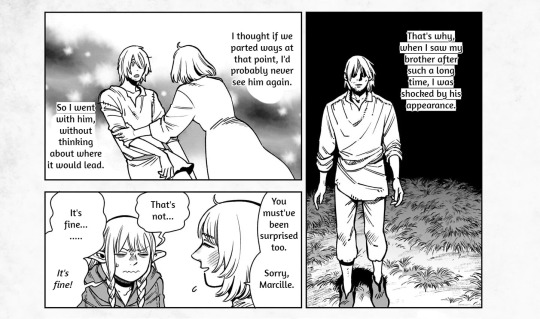
A friend always says that while Falin is the center of Marcille’s world, Laios’ is at the center of Falin’s, and I tend to agree.
It’s fun to think of how her career dreams had always been shaped by Laios, even when they were kids. Of course there’s how traveling the world began as a dream they talked about and shared, but there’s how he reassures her by listing cool jobs she could do like traveling exorcist, etc. And then of course, she gave up on her magic academy and career path to follow him and do odd jobs, etc etc.
I should go into the violence of Faligon more tbh, because I think there’s an interesting parallel to how she has no problem wacking things with a mace, wether a ghost when she was a kid or a walking mushroom as an adult. Something that often surprises fans when they remember, I don’t really want to get into the whole "
Falin hates violence and hates seeing people in pain to an intense degree. ‘If you die do it somewhere where I can’t see’ style’ interpretation, it has some weight but on the whole I don’t vibe with the theory she has a particular aversion to violence, she seems to be fine resorting to it as much as any other adventurer as long as it isn’t needlessly against ghosts.
And Falin’s sudden mace hits are fun to me too because it’s not her becoming a berserker when the need arises as much as her becoming active because something she cares about is threatened, and that brings her out of her passivity from 99% of the rest of the time. Thistle included. Falin always could be violent, she just dislikes senseless carnage. The Shuro party vs chimera fight is a bit ambiguous on it, because you can argue she only attached after being provoked, presumably offscreen as well while the ninjas went off to fight the harpies.
Falin becomes the most active when she needs to protect someone, she has no qualms doing whatever’s needed for that, wether it be leaving the academy & Marcille without notice no matter the consequences or what her parents think, or teleporting the party, etc.
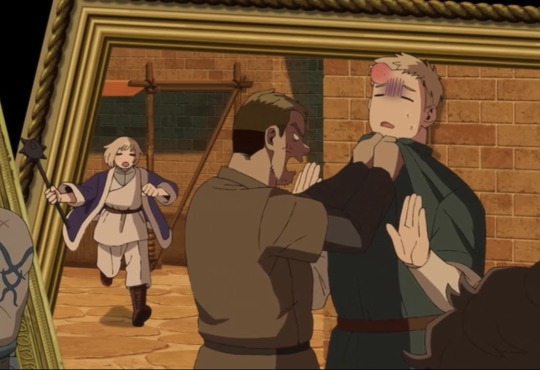
I’m working on a post specifically pointing out all the differences between Falin and Laios, but yes I think both of them selfishly desire freedom in different yet similar ways. Falin’s dark secret is "Ethics and risks are optional if it means I can protect those I love" like the teleportation, and Laios’ is "Ethics and risks are optional if I can be free of all this bullshit" aka humanity aka his wish with the winged lion.
Conclusion
Flighted birds have hollow bones. With freedom and wings there comes risks and sacrifices.
Tldr:
Falin doesn’t care all that much, she’s very go with the flow. For example if someone hates her she doesn’t really care because that’d require her caring about what they think of her in the first place, and she only cares about her loved ones. She smiles, but it’s more a state of being rather than out of active goodness: she’s canonically very genuinely kind, but it’s more out of a general want for pleasantness than active care itself. She’s passive, and softspoken because that’s just how she seems, but she has no problem hopping into bushes or getting heated if something calls to her enthusiasm or calls for action and a hit of the ol’ mace. Her loved ones needing tending or protective is what makes her go from passive to active. That familiar autopilot mode of making someone the center of her world and following their every move is what made her so easy to be controlled as the chimera, even ferociously defending him with her life.
Faligon is most interesting to me with the theme of freedom. She’s shackled to Thistle and out of her mind, but there’s also a sense of empowerment and freedom from expectations and society.
She spends all her time caring for Laios and Marcille alternating that none of her care and emotional energy is left for others, including herself. So she had to get relieved of all of that for a bit, becoming the chimera so she could reset and recenter and remember that she, too, indeed, is there and an important part of her own life.
There’s a way of caring after others that can be selfish, not unlike Marcille being overly coddling and not listening to Falin. In Falin’s case, I think it was so selfless that it ended up looping back around to erasing her sense of self. In losing sight of herself, that devotion becoming neither quite selfish or selfless but a fact of life and a state of nature, muddled by its lack of direction.
She’s sooo used to never being able to ask things out of others, you get the crumbs of affection and approval that others offer to you unprompted and that’s it don’t hope for more don’t ask for more. (Also reflected in how she follows her loved ones around without complain or personal opinions and how she’s not willing to rock the boat and affirm herself in her relationships like with Marcille during canon)
Falin cares so much, so much and so laser focused on her few loved ones that it blinds her and she loses sight of everything else, she ends up neglecting herself and the rest of the world. As Kui puts it, Falin is herself first and foremost. She just had to remember the importance of that.
-
I see her as an enneagram 9, which can be surprisingly accurate and fun to research through the lense of Falin. Excerpt below from this book, but like my god, good way to put it
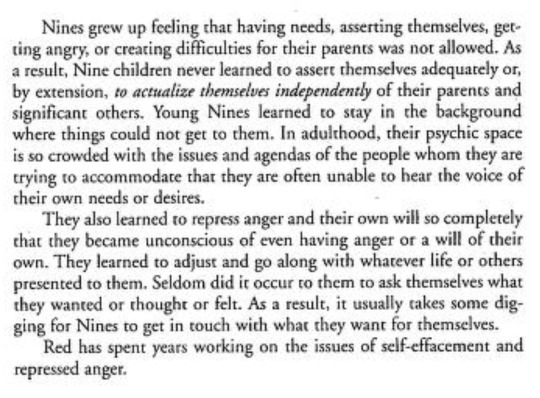
That’s it, ty for reading. Even if it’s a bit of a mess, hopefully you’ll have gained a thing or two from it. Falin is a character hard to pin down, but it is very gratifying when you find the way that the puzzle pieces fit together right for your own understanding of the story.
Fantranslation of the shuro proposal comic by @/thatsmimi here.
Here’s my spotify playlist for her if you’d like
Sometimes love is about letting go, a lesson a lot of the cast needed to learn. Self-love’s important too, and just like with diets we need a healthy balance.
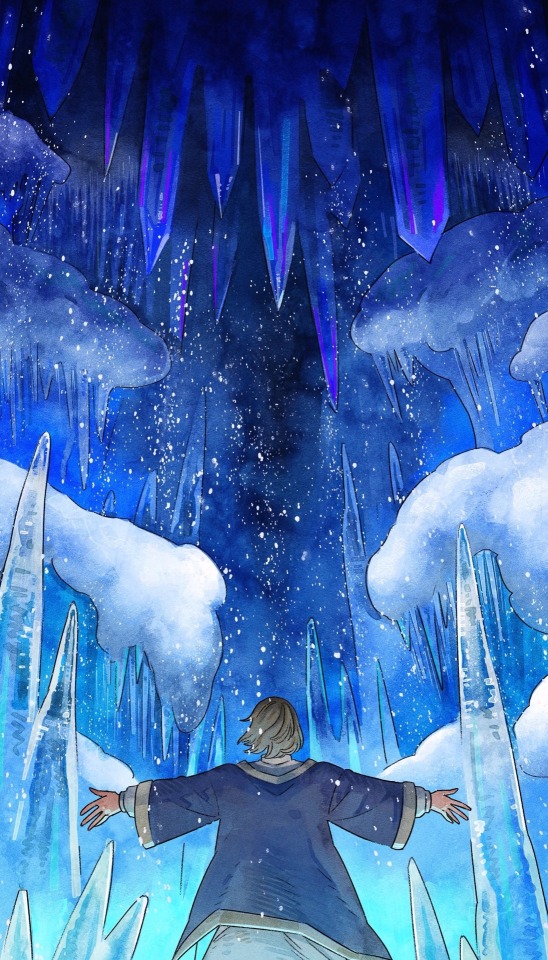
#I find it hard to express myself right on the topic of Falin. Both because the issue is pretty vibe based and because we don’t#get that many moments with her. So there’s ambiguous scenes up to interpretation addressing a layered topic and like. Save me. Save me#As always falling down the rabbithole of starting an analysis about a specific facet and then needing to explain everything else around it#I’m doomed. I’m getting lost in the sauce.#dungeon meshi#delicious in dungeon#falin touden#analysis#character analysis#meta#autistic reading#aroace reading as well. Sort of. It’s mentioned#The aroace autistic guilt of not caring back in the way/with the intensity you’re expected to#As always this is just my interpretation blablabla#Spoilers#dungeon meshi manga spoilers#She loves like a dog aka unconditionally and happy with eating scraps of affection and attention off the floor#Laios touden#he’s here too bc they are an unit#If you’re not capitalizing on the uncanny vibe autistic effect for Falin’s character u are missing an opportunity imo#Fairy’s child is written all over her. Her cryptic-ness is the point so why am I surprised she’s hard to fully pin down#Even with the graveyard scene it was Falin following Laios… Sob. Laios could feel responsible her powers were found out#I’d like to rework this at some point if i get better at structuring. I’m not satisfied by the level of clarity#Will 90% for sure edit stuff in if i find more to say.#Fumi rambles#Crazy style#I give a TLDR at the end if you’d prefer. It doesn’t have the like evidence/explanations alongside but it makes the main points i think
664 notes
·
View notes
Text
Ok, so Muppet AU! Every ability user in canon is a muppet, except for Dazai, who nullifies both abilities and the physical state of being a muppet!
Now that that’s established:
Bram is already kind of a muppet, right?

(Whenever Bram spreads the vampirism, the newly infected muppet just gains a pair of glued-in fangs)
Corruption is just muppet-Chuuya on a string, being swung wildly about like the killer rabbit from Monty Python and the Holy Grail
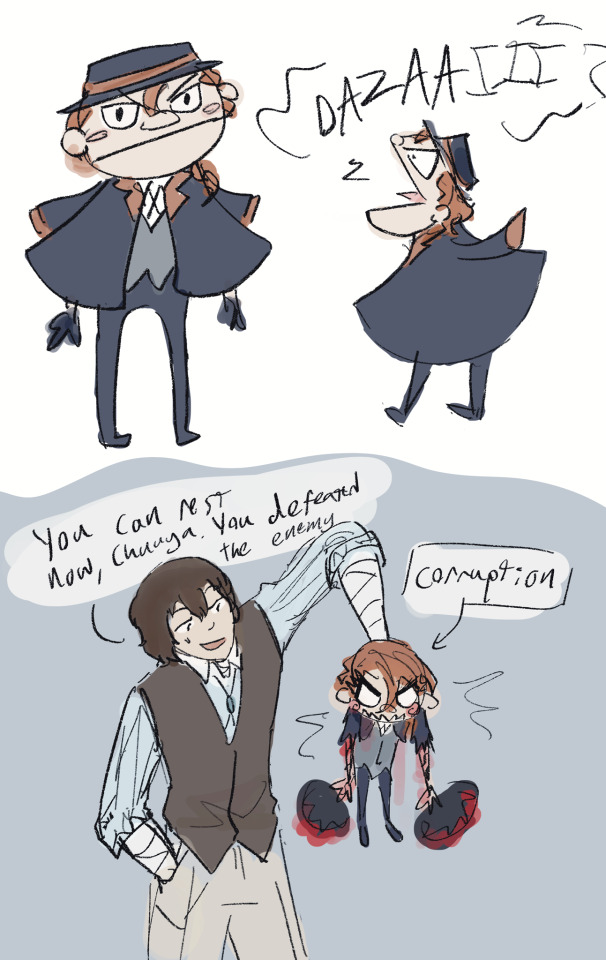
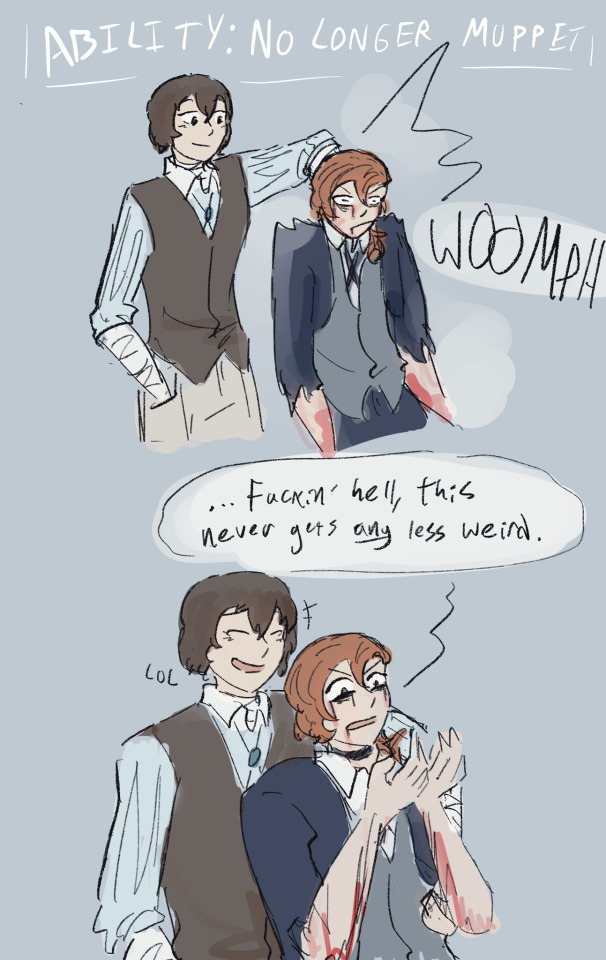
Imagine you are a muppet for as long as you can remember, and then one weird human pokes you, and suddenly you are also human for the first time alsksjdjf
Oh and the best part of this AU is Ranpo!!! Because if Fukuzawa convinced Ranpo that he had an ability when he was fifteen, then that means that Fukuzawa simultaneously had to convince a human boy that he was a muppet.
And Ranpo believes this for years.
Ranpo, a human man: “Haha, I have the best ability in the agency! >:D”
Atsushi, a tiger-muppet who has just learned how all this works:

#this is how my brain copes with being cooped up apparently#I cannot properly express just how much the Ranpo bit has been making me crack up it makes me so happy#also holy shit dazai and fyodor’s dynamic is so funny too#breaking news: man has extremely antagonistic relationship with a muppet bent on destroying all muppets#the fuckingg— the alleyway scene. oh my gosh. DEAD APPLE#Dazai sitting at a table with TWO MUPPETS who then proceed to STAB HIM#Dazai having a normal one dkdjfjfjf#don’t mind me I’m losing it#bsd muppet au#bsd#my art#bsd chuuya#bsd dazai#bungou stray dogs#bsd bram#bsd fukuchi
1K notes
·
View notes
Text
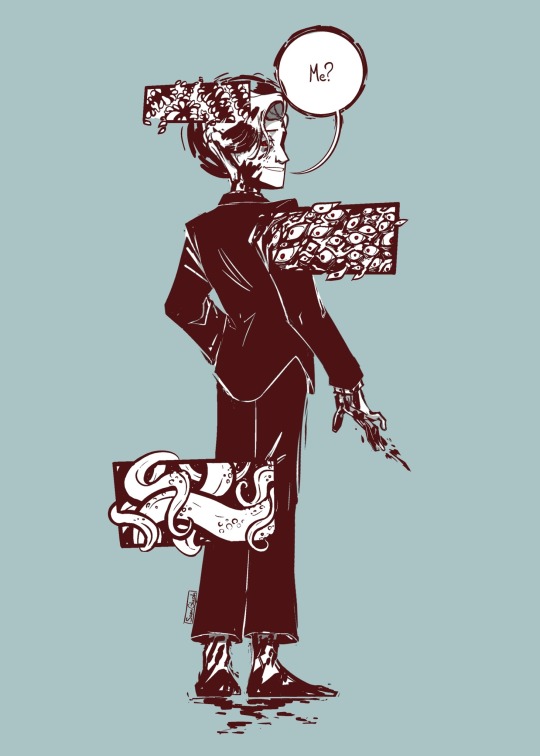
Who are you?
#oh look at me let me do a little cool down sketch of kayne that’ll be relaxing#folks. it was not relaxing I changed his facial expression and pose like ten times and I’m still not happy with it#so whatever I’m going to sleep#malevolent#my art#fan art#malevolent fanart#malevolent kayne#kayne malevolent#malevolent podcast#malevolent podcast fanart#body horror#horror art#blood cw
361 notes
·
View notes
Text
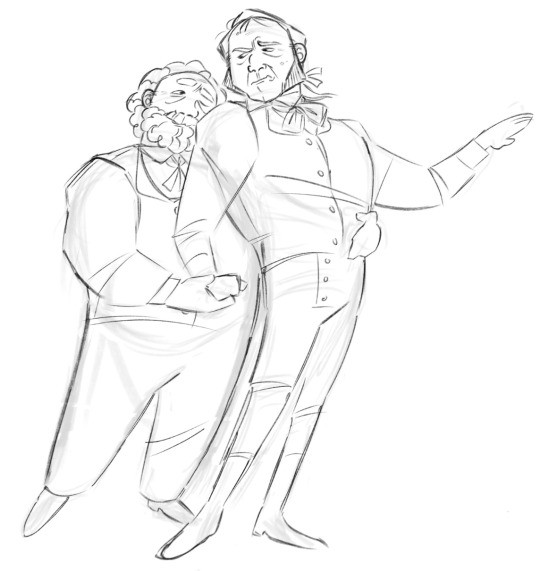
Fellas <3
#been wanting to draw them dancing for a while so I’m happy#also very proud of valjean’s expression…so full of love#les miserables#valvert
220 notes
·
View notes
Text
I love this man so muuuuuuch ❤️ ❤️���️❤️
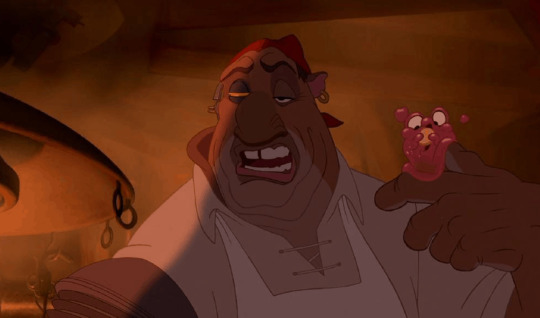



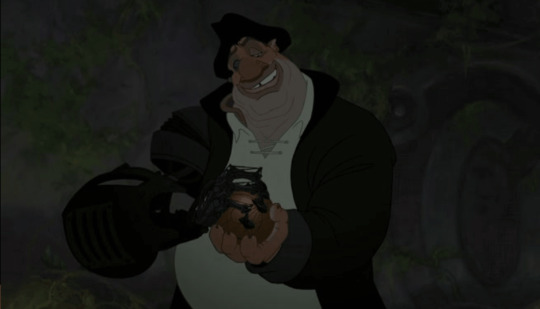
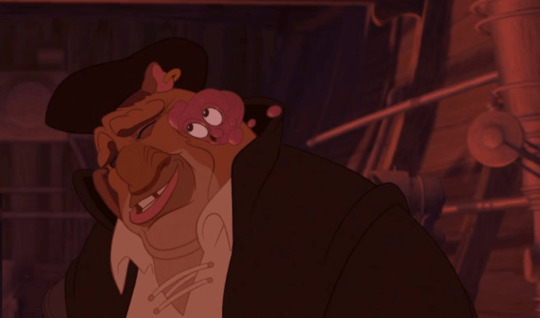

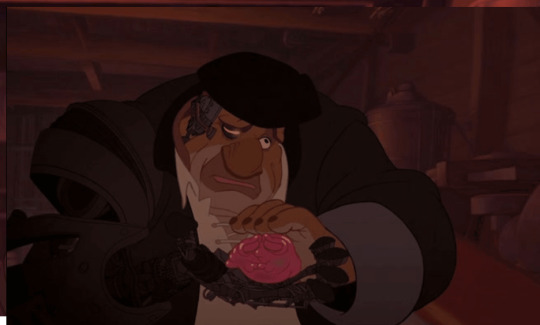
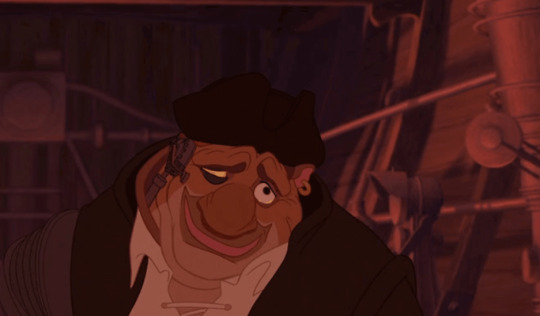
#treasure planet#Ty for making him so expressive#I’m a giant sucker for big characters being cute#only ever seen this film all the way through once during my childhood and remembered NOTHING except the robot#but oml I’m happy I rewatched this as an adult#john silver#that bottom image legit melts my heart lol what a sweet smile
175 notes
·
View notes
Text
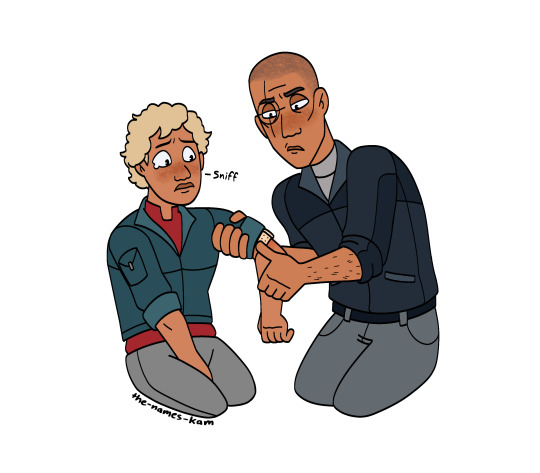
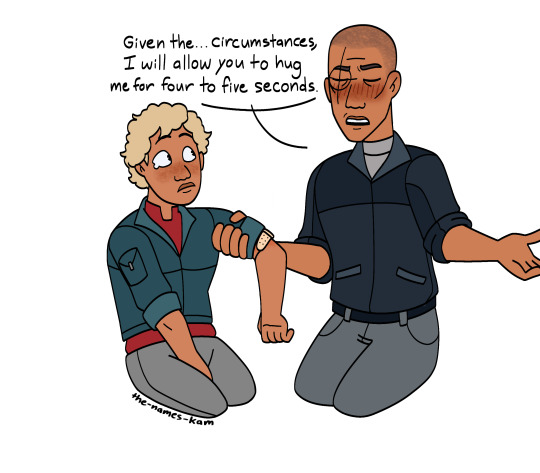

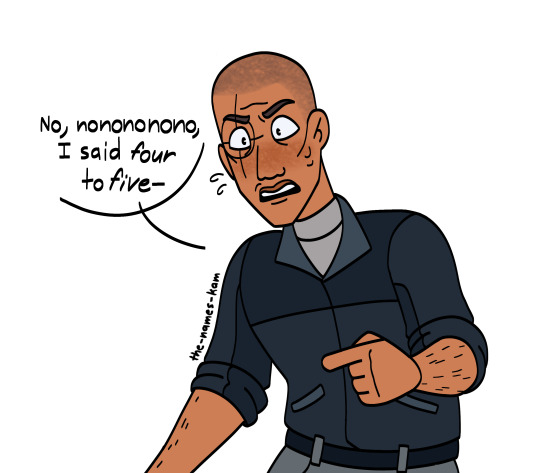
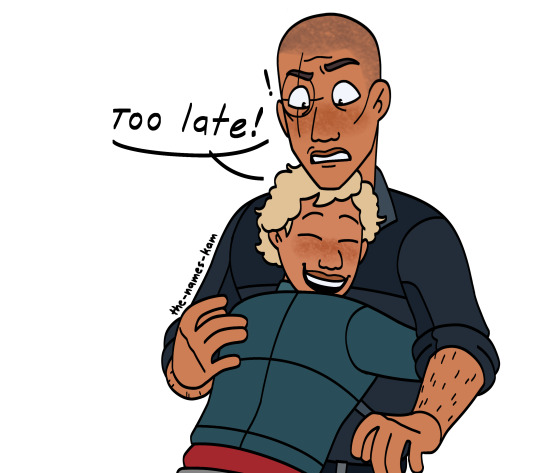

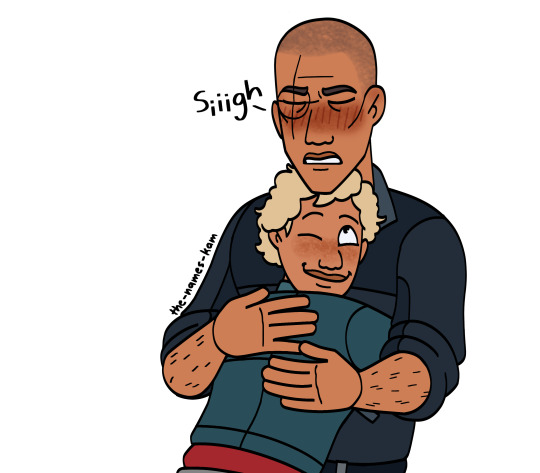
in honor of me finally watching season 2 of the bad batch (and once again losing my mind over these two) i decided to redraw this old comic of mine!
(originally based off of this post by @simplysummers!)
#AND APPARENTLY MY WISH CAME TRUE because i will genuinely be impressed/baffled if we don’t get any omega + crosshair interactions in s3#i’m literally so excited for it#also. not to toot my own horn but. i’m literally so proud of the improvement between the two versions omg#i won’t lie there are some things i like better in the old one (mainly some of the expressions)#but i’m still very happy with the new one overall :]#also if any of you actually remember the old version you deserve a veteran’s discount <3#star wars#tbb#the bad batch#tbb crosshair#crosshair tbb#tbb omega#omega tbb#crosshair and omega#the bad batch crosshair#the bad batch omega#long post#kam’s art#my post
321 notes
·
View notes
Text
some of my fav dolores expressions from “a madrigal showtime” comic!
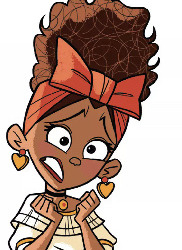
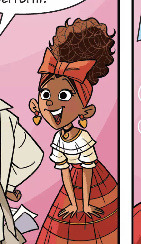
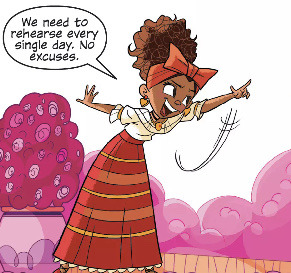
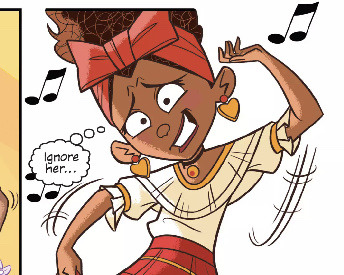
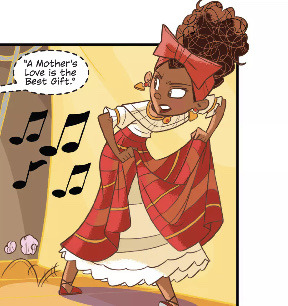
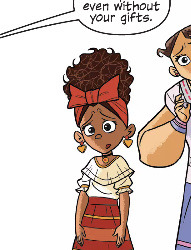
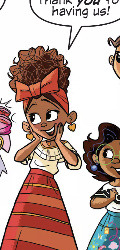
#encanto#encanto disney#disneys encanto#dolores madrigal#we got Dolores content and I’m so happy about it!!#she’s so cute#Dolores I love u!!#look how expressive she is!!#also loved seeing her competitive side!#disney’s encanto#encanto books#encanto comic
70 notes
·
View notes
Text


I ABSOLUTELY ADORE ALL THE ANIMATIONS IN RTDLDX I JUST. HAD TO SHARE THESE TWO FROM META. THEY ARE MY WHOLE ENTIRE WORLD RN. I ALMOST CRIED WHEN I SAW HIS LITTLE WING FLAPS. HE IS SO EXCITED!!

I also had to include this one… he’s just a little shy 🥺
#meta knight#kirby#kirby rtdldx#return to dreamland deluxe#gif#not art#THIS IS MY FAVORITE THING EVER#THEY DID SO GOOD MAKING EVERYONE SO EXPRESSIVE#IM SO HAPPY META HAS SOME REALLY CUTE AND EXPRESSIVE ANIMATIONS!!! WAH#I AM ON THE VERGE OF TEARS I JUST LOVE HIM SO MUCH#there are so many other animations I could choose to put here too I’m just#I’m so obsessed with him#I’m so happy with how expressive and silly his animations are 🥺🥺🥺🥺#truly the silly man we deserve
440 notes
·
View notes
Text
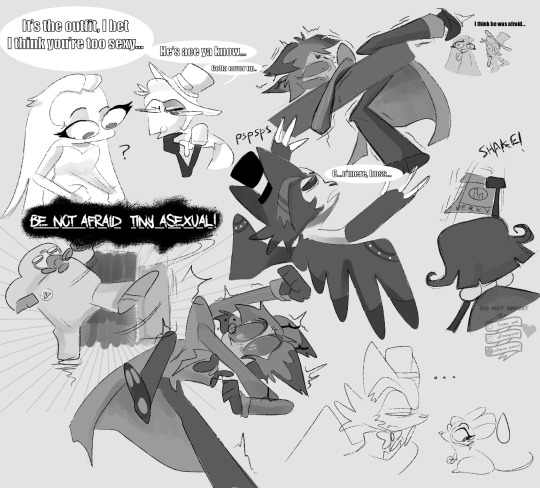
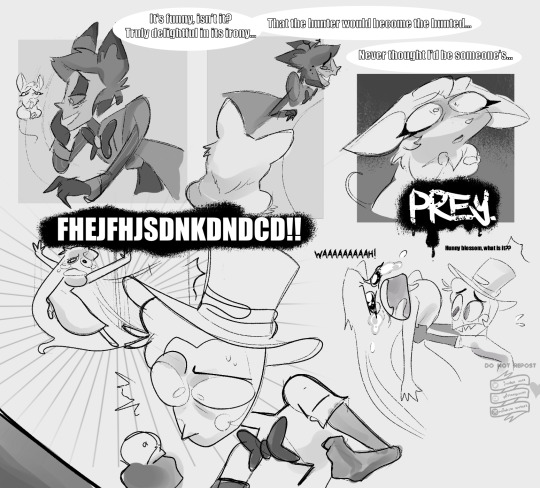
A spread based on rps with @gctchell
Having no idea about Alastor’s deal and that Roo has masqueraded as Lilith this whole time, Lucifer and Lilith are baffled by Alastor’s terror of Lilith. Thinking he’s scared of her because she’s too sexy they keep trying to find ways to cover up Lilith’s sexiness (in turn scaring him more 😔)
Lilith appears as various little animals to try and gain Alastor’s trust and apparently the animals with make up totally on fleek hasn’t tipped him off yet
(Enlarge for better quality)
#alastor#lucifer morningstar#lilith morningstar#husk#niffty#hazbin hotel#okay to reblog#i’m so happy with this spread lmao I have so many in mind#FEEL FREE TO MAKE ANY ICONS HERE FROM LILITH’S EXPRESSIONS LMAO#(my art)#(rp art)
44 notes
·
View notes
Text

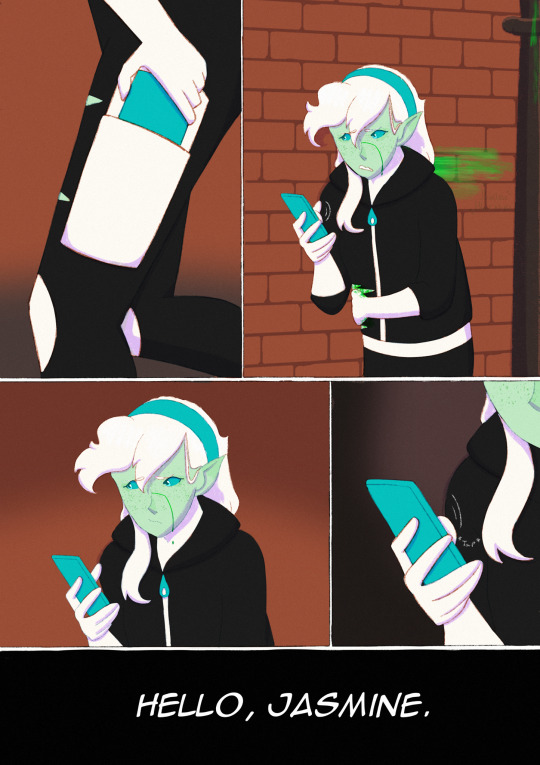
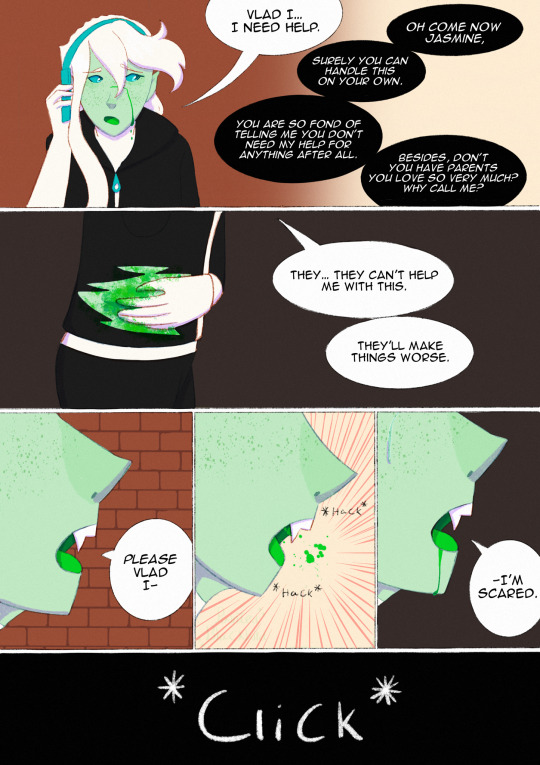
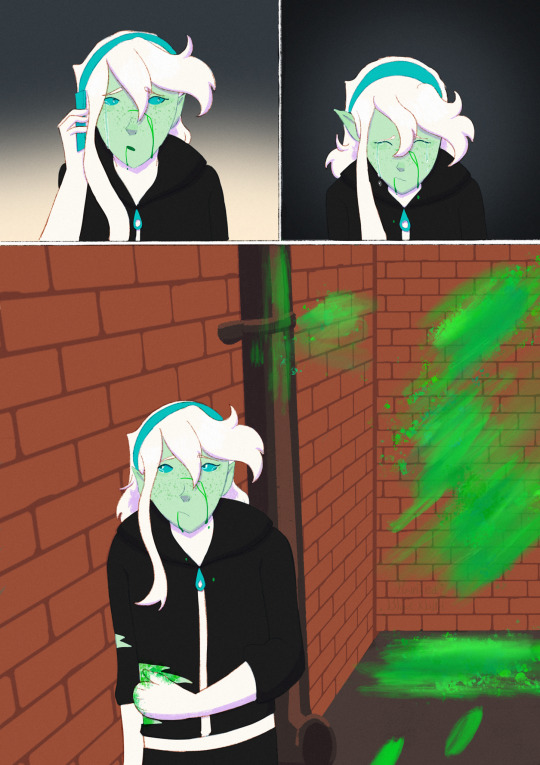
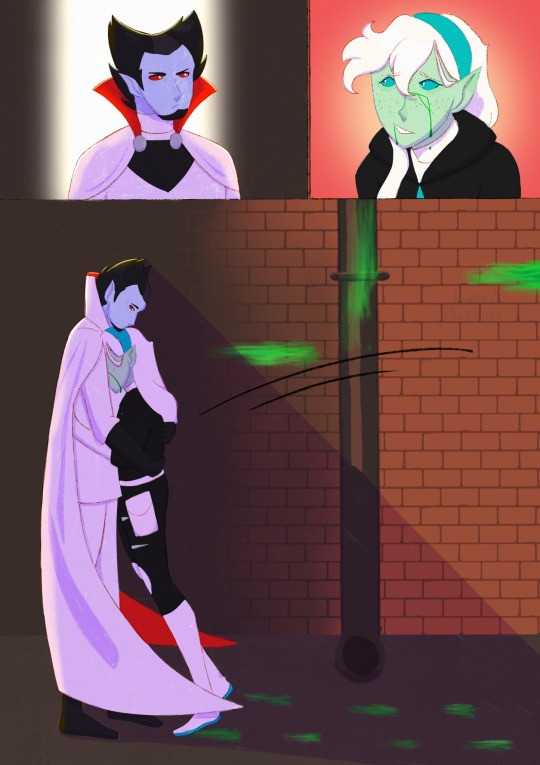

Huh, turns out that arch-nemesis might be kind of trustworthy after all…
Who knew.
#bird’s scribbles#danny phantom (show)#halfa!jazz au#jazz fenton#vlad masters#vlad plasmius#danny phantom#that one is for search purposes lol#guys I am so so so proud of how this came out#this is my first big comic project ever#and while there’s a lot of stuff I’ll do differently next time#now that I know what I’m doing#there’s so many things I’m happy with#the close ups and the expressions and I played around with the lighting#that background?? pretty proud of that bc I planned it super poorly#I’m so pleased lol#also Vlad and halfa!Jazz my beloved#their dynamic is so good#and I will never not be a sucker for Vlad turning himself into an actual mentor by accident lol
118 notes
·
View notes
Text


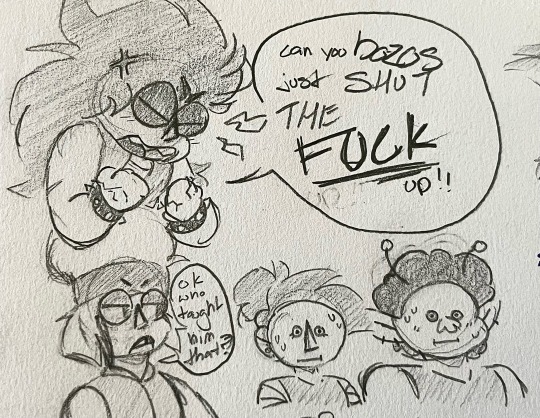

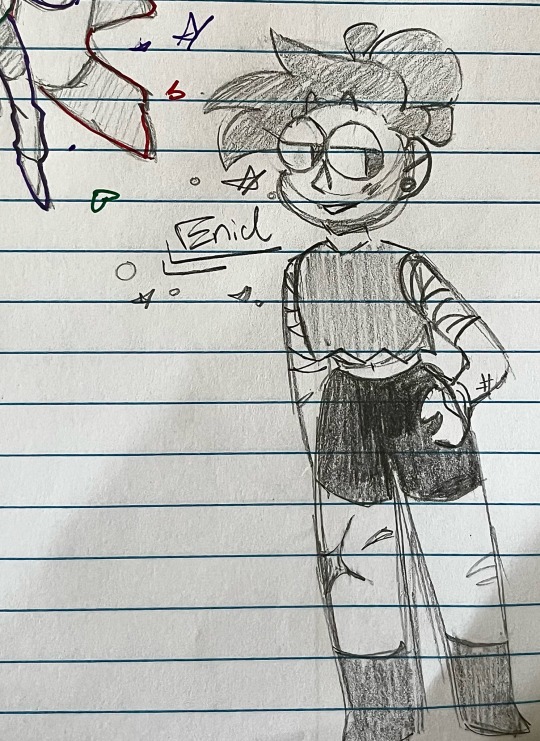
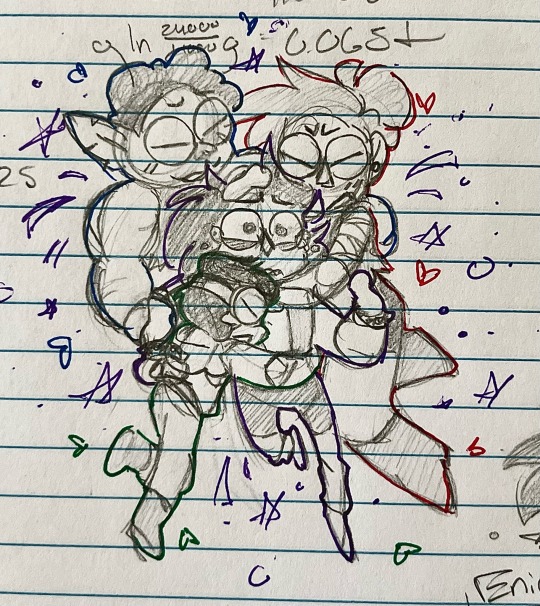
OK K.O. is a really really really good show
#I’ve found yet another lovely show to make silly fanart of#okay ‘found’ isn’t the right word#I’m rewatching the series for the first time since I watched it as it came out#godddddd it’s so good#I’m on s3 already and I’m going to cry when I finish it#they should’ve allowed 1 fuck and thats in the first tko episode#I was debating putting frick instead because that would’ve been funnier and more in chatacter#but eh I already did it this way#and I’m rly happy w the expressions on rad n Enid for that one#ok ko#ok ko let's be heroes#ok ko fanart#ok ko ko#ok ko enid#ok ko rad#these three goofy guys gave me a shit ton of art motivation so#expect more I guess#Crab Doodles
38 notes
·
View notes
Text
Izzy Hands when he realizes he can do drag at Calypso’s Birthday Party:
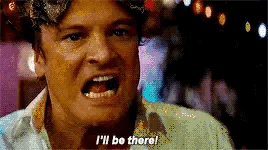
#ofmd#our flag means death#Izzy hands#my beloved#I’m so happy he’s expressing himself more this season!
89 notes
·
View notes
Text
“This has both our names on it”: Viewing Fleet and Clara’s relationship in Victoriocity through a queerplatonic lens
TL;DR: By Season 3 of Victoriocity, Fleet and Clara have developed a committed emotional partnership that certainly moves beyond the purely professional. Whilst very much operating as a duo, they can be interpreted as often rejecting or subverting romance-coded elements in their relationship, instead embracing a unique dynamic that can be read as resonating with the concept of a queerplatonic relationship (QPR).
Buckle up because this is over 2,500 words long! If you'd rather read it as a document, you can access it here: Fleet & Clara QPR Google Doc
Disclaimer: I'm not making any claims about creator intent, nor about how anyone else ought to interpret Fleet and Clara's dynamic. It's also worth acknowledging that queerplatonic relationships are inherently defined by the people in them and any attempt to apply such terminology to a story set in 1887 is obviously anachronistic (although whether that should matter when said story also contains a cyborg Queen Victoria is up for debate).
With that said, if we define a QPR as a committed personal partnership which is not entirely captured by the typical expectations of either friendship or romance but may contain some elements typically associated with either (other definitions of QPRs are available), I enjoy viewing Fleet and Clara's relationship through a QPR lens, and I want to talk about some of the reasons why I think this reading works.
***Spoilers for all three seasons of Victoriocity and the novel High Vaultage***
Detective duos
Even before we actually get into Fleet and Clara's particular bond, detective / crime-solving duos as a general concept have QPR energy to me (which probably predisposed me to this interpretation). It's the Holmes-and-Watson legacy. It's the use of the word 'partner' in a non-romantic context (‘associate’ or ‘companion’ can also serve a similar purpose). It's the intense trust and reliance on each other. It's the sense of being a recognisable pair, always appearing together, known as a duo, with skills and attributes that complement each other.
Romantic assumptions
Moving on to Fleet and Clara specifically, one aspect of their relationship that can be read through a QPR lens is how they are often in situations where other people believe or imply that there is a romantic relationship between them. Sometimes this is a deliberate strategy of theirs, and sometimes it’s imposed upon them by others. But I’d argue that there’s never a point where they both simultaneously seem entirely comfortable with that romantic narrative for their relationship. Usually one of them will actively deny the assumption or react negatively to the implication:
When Mrs Hampshire interprets Clara and Fleet as a couple experiencing “young love”, Clara might be happy to adopt this as an effective cover story, but Fleet seems unsettled and keen for them not to be perceived this way: “No. No. You’ve misunderstood, we are not, that is to say I am…” (S1E2)
When Warden Hughes assumes Fleet is the new Warden and Clara is the new Warden’s wife, Clara says “I am certainly not”, with emphasis on the ‘certainly’. (S2E2)
Fleet definitely doesn’t sound enthused when he realises Clara has gone for a married couple as their cover story at the Grand Salcombe: “I am sure I’ll regret asking, but by any chance am I [Mr. Theasby?]” (S2E2)
When Titus Byrne tells the pair “I take it you're happy sharing [a room]”, Clara responds with a horrified “What?” (S3E4) (Obviously sleeping in the same room isn’t inherently romantic, but it is often perceived that way.)
Of course, fake dating and external assumptions of romance are very common tropes in romantic will-they-won't-they dynamics, and these moments could definitely be interpreted that way for Fleet and Clara. But I prefer to read these instances as reflecting a different kind of closeness between these two characters. They have a sense of emotional partnership that allows a marriage cover story to seem plausible to others and that other people sometimes automatically assume to be romantic (obviously with some period-typical heteronormativity at play). But to me, it doesn't seem like either of them are fully comfortable with their relationship being perceived in a directly romantic way. Perhaps they are a couple in a different sense…
Proposal via door plate
The way that Fleet asks Clara to be his business partner has always seemed to me like a platonic version of when people find personal ways to surprise their romantic partner with a proposal:
CLARA: You bought me a door plate for your office? [...] This has both our names on it.
FLEET: What do you think?
CLARA: I like it. (S2E7)
Fleet could have just asked Clara outright, without going to the trouble of buying a sign that would have been useless if she’d said no. If it was purely a professional business proposition with no emotional meaning behind it, I think he would have just asked verbally. But instead, he gifts her a sign with their two names paired together: Fleet-Entwhistle Investigations. There's something so intimate about that to me: about Fleet asking Clara whether she would like to be a duo with him in a more formally-defined but still non-romantic way; about him choosing to present this offer in the form of a gift; about the way he presents her with their two names joined together etched into metal and asks what she thinks; about the significance that this gesture attaches to their partnership; about him having enough trust that she'll say yes that the effort and vulnerability of presenting her with that sign seem worth it for him. And the gesture means an awful lot to Clara:
She thought about the door plaque he’d had engraved with both their names on it as his way of inviting her to be his business partner – typical Fleet, refusing to tell her so much as his favourite breakfast food and then to go and do something like that. It was the nicest thing anyone had ever done for her. (High Vaultage, p187).
Anniversaries
In the special episode ‘Murder in the Pharaoh's Tomb', Clara says “And you know what else is a big occasion Fleet? It's our one-month anniversary.” She wants to celebrate the anniversary of Fleet-Entwhistle Investigations. Their partnership holds a significance for her that means key dates associated with it are worth remembering and remarking upon.
When Clara first mentions their anniversary, Fleet nearly chokes on his drink, which seems like an instinctive reaction to the usually romantic connotations of an anniversary (see my point above about Fleet not being comfortable with their dynamic being perceived as romantic). But when Clara clarifies what she means, Fleet seems much more cheerful about the notion of their anniversary: “Ah, so it has.”
“Miss Clara Entwhistle, my partner”
I get extremely strong QPR vibes from this moment, when Fleet introduces Clara to the sailors at Grave End:
FLEET: This is Miss Clara Entwhistle, my partner - in business, my business partner.
CLARA: I'm also his friend, but he doesn't like to say it. (S3 E3)
Fleet and Clara are partners, but not in the way the average person might assume from that word, which Fleet realises mid-sentence here. This is another instance of Fleet reacting negatively to the idea that their relationship might be interpreted romantically (see above). And yet, 'partner' (rather than, say, ‘colleague’) is the word that comes naturally to him in this moment to describe who Clara is to him. He then frantically emphasises the professional element of their relationship so as to avoid the romantic implication, but Clara is keen to proudly assert that there is a personal, emotional aspect to their dynamic too. They are first-and-foremost partners, and they are friends, and they do not want to be seen in a romantic light - this post basically writes itself...
“Her ridiculous detective.”
When Clara fears for her life at the display of the Lanterns, the narration tells us:
“she thought of her brother, her sister, her parents... Her ridiculous detective.” (High Vaultage, p172)
The fact that Clara thinks of Fleet in this moment of fear clearly indicates his importance to her, but I think the phrasing of this quote is particularly interesting. The narration lists Clara's immediate family: two of whom are dead (her sister and father), one of whom is publically mourning Clara's life choices (her mother), and only one of whom we have any real evidence of her having a positive relationship with (her brother). And then, separated from these complicated familial relationships by an ellipsis, the narration tells Clara also thinks of Fleet, “her ridiculous detective”.
Parents and siblings are familial relationships that tend to come with established expectations, in which the use of a possessive pronoun (i.e. her brother) to indicate the relationship is a norm. ‘Detective’ does not fall into this category; unlike ‘brother’, ‘sister’, ‘parent’, ‘friend’, ‘partner’ etc., ‘detective’ is not a word that inherently implies a relationship or that we'd usually expect to see preceded by a possessive pronoun. The idea of ‘her detective’ therefore stands out, giving the sense that there is a unique relationship being indicated here. The way in which Fleet is ‘hers’ is something that Clara has chosen for herself, something that they have shaped together. Who they are to each other can't necessarily be fully expressed using standard phrases that traditionally describe relationships between people. But Fleet is Clara's detective, of which she only has one, and who she'll think of in the midst of “the screaming of the heavens at the end of the world”.
Fleet is also the only one in this list of Clara's loved ones who gets an adjective - her love for him has detail. And while “ridiculous” might often be perceived as negative (it's certainly not a classic romantic endearment), it seems to me like there's such fondness in it in this context: the recognition of and affection for eccentricities, the idea that his importance to her is not (purely) based on his professional strengths but on Fleet as a whole - perhaps at times ridiculous - person.
“Settled”
When Clara and Fleet talk about Clara's mother’s expectations for her, they have this exchange:
"She's still living in hope that one day I'll settle down."
"You're not settled?" asked Fleet.
"I am." (High Vaultage, p259)
By ‘settle down’, Clara's mother of course means ‘marry’, ideally into “at least a minor baronetcy”. But Clara already considers herself "settled", just not in a way her mother would understand or appreciate. She's not looking to "settle down" into a lifestyle other than her current one. She is settled in a situation where Fleet is certainly her closest personal connection in London (and perhaps anywhere), and where the two of them work closely together, operate as a duo, and then go back to their separate homes. And this partnership with Fleet is a comfortable set-up that feels right for Clara exactly as it is, rather than being a precursor to, or a distraction from, the marriage ambitions that her mother wants for her.
I think this exchange also contains an implicit sense of the commitment between the two of them. Fleet wants to check that Clara is ‘settled’ in her current situation, of which working closely - and platonically - with Fleet is obviously a major element; Clara confirms she is. There's a subtle indication of their shared intention to be in this for the long haul.
As a sidenote, Fleet and Clara’s implicit assumption that their partnership is a long-term one can manifest itself in joking contexts as well as serious ones. Look at this exchange from S3E5:
FLEET: We're not bandits, we're just going to flag it down.
CLARA: We'd be terrific bandits!
FLEET: Let's just see how our current line of work goes.
I think it’s notable that, in this joking speculation, both Fleet and Clara use ‘we’ and ‘our’. The joke could have been phrased just as effectively if they were imagining only Clara becoming a bandit. But the suggestion is that, if either of them was a bandit, they’d be bandits together. Even if they changed their lives entirely, they'd still approach life together.
Inseparable
Fleet and Clara have become a nearly inseparable duo in a way which is noticed by others. For example, after Clara and Fleet fall out in High Vaultage, Fleet meets with Keller, who says:
"You're here with me instead of barrelling across town with her, so I'm just assuming there is some thickheaded puffinry for which you need to apologise to Miss Entwhistle" (p335)
Keller, hardly the most emotionally perceptive man in Even Greater London, automatically infers from the fact that Fleet is on his own that he has had a falling out with Clara, rather than that they just happen to be in different places. When all is well, Keller expects to see the two of them together, whether or not they are in a position to be actively working a case.
Going back earlier in their partnership, Keller makes a similar assumption about Fleet and Clara being inseparable in S2E6. When Clara shouts her name amidst Keller's anti-Vidoc booby traps, Keller asks "Entwhistle? Which means… Fleet?" Again, there's this idea that if one of them is there, the other is likely to be there too - they come as a pair. (It's worth noting that this scene takes place less than two weeks after they first met.)
“Like a friend might?”
At the end of S3E7, Fleet suggests that he and Clara go to the theatre together. It would have been easy for this invitation to have been explicitly framed as a romantic proposition, or even for the nature of the offer to have been left more ambiguous. But Clara says "Archibald Fleet, are you inviting me to a social activity? Like a friend might?" The use of the word 'friend' directly labels this as a platonic interaction. And it's with that platonic lens on it that Clara is extremely excited to spend non-work-related social time with Fleet.
“Maybe it'll just be my good luck charm.”
CLARA: My grandmother's ring, I don't suppose you managed to hold on to it? [...]
FLEET: Oh, it's been crushed.. I'm sorry Clara [...]
CLARA: No, you keep it.
FLEET: What? No...
CLARA: Keep it. Maybe it'll remind you not to run towards trains.
FLEET: Maybe. Maybe it'll just be my good luck charm.
In S3E7, Clara gives Fleet a ring, which - as a gift from one person to another - is traditionally a symbol of a particular, legally recognised, kind of personal commitment. But when Clara tells Fleet to keep the damaged ring, down in the Underground tunnels after the destruction of the beast and Fleet's latest brush with death, it is quite a different situation to a wedding or a proposal. A married man would traditionally wear his wedding ring on his finger for all to see, but Fleet won't ever wear this ring like that. The ring itself has been bent into a different shape between the wheels of their misadventures, subverting the usual associations of a ring given from one person to another. (In a heteronormative world, those associations are particularly strong when the two people in question are a woman and a man.)
That ring is not an engagement ring, but it is Clara’s grandmother's ring, an inheritance from the blood family she never really felt she belonged in, now given to the man who might be a very different kind of family for her in London. That ring - with which Clara saved Fleet's life - is a symbol of their bond. And it therefore serves as a reminder for Fleet “not to run towards trains" and as a “good luck charm”. I like to think he'll carry that ring with him, perhaps in his jacket pocket - a little piece of his partner, kept close to his ticking heart…
Thank you for reading all of this!
If you’ve read all of this, I'm assuming you also enjoy the concept of Fleet and Clara as a QPR (unless you're really a glutton for punishment) and that makes me very happy! This was long because there's so much to say about them… And I wrote all of the above without even getting into: the potential to headcanon Fleet and/or Clara as aspec (which I don't think is necessary for QPR headcanons, but which is also fun); Clara's baggage around and discomfort with marriage in general; the speed with which Fleet and Clara become a ride-or-die duo; and the many other demonstrations of care, understanding, trust, respect, and affection between them that didn't feel as directly QPR-coded to me but are nonetheless wonderful. Please do feel free to share your own thoughts!
#victoriocity#clara entwhistle#inspector fleet#archibald fleet#high vaultage#I'm not really trying to persuade anyone who doesn't already vibe with Fleet & Clara QPR as a concept#I just enjoy digging into that interpretation#I don't have any lived experience of QPRs myself#I'm just an aro who occasionally yearns#which tbf is probably the demographic most likely to obsessively interpret fictional duos as QPRs#I tried to avoid straying into anything like ‘they are too important to each other to be *just* friends’#when writing this#because I deeply dislike that outlook#That's not what I'm getting at here#Friends can be that important to each other without being in a QPR#I just think Fleet and Clara are important to each other in a particular way that can easily be read as a QPR or QPR-adjacent#Ngl for me personally I was very happy that there was no explicitly romantic Fleet and Clara moments#in S3 or High Vaultage#I’m sure I would still love their dynamic if they did explicitly take it down that route#I’m sure it would be done well#But the fact that Fleet and Clara are platonic (or at least ambiguous) means a lot to me personally#A related thought to that bit on romantic assumptions is that under amatonormativity#even the denial of romance/attraction is so often treated as evidence for it#which can mean that there's no way to escape that implication#so that's another reason why I enjoy taking characters at their word#when they express discomfort over a dynamic being interpreted as romantic#I finished writing this on Wednesday and I've been so impatient about waiting until S3 is fully out to post it lol
51 notes
·
View notes
Text
Y’all telling me that Stranger Things has a whole plot line set in Russia, and that in Russia yellow flowers represent sadness, dishonesty and when given to a partner an inevitable breakup?!?!?!?💀
Oh Michael…



#yellow flowers are most commonly associated with joy#and together with the russian symbolism it underlines that mike is only pretending to be happy here#and i’m fairly certain that the big yellow flowers are either:#1: black-eyed susans which represent justice and are apparently great gifts to express sympathy for someone who’s grieving😀#or 2: coneflowers which represent good health and are perfect gifts for someone who is recovering from a health issue 💀#plus there are also craspedias included which also represent good health#so mike literally gifted el a get-well-soon bouquet that not only reflects that he’s being dishonest in this scene#but also foreshadowed the melvin fight + that they’ll inevitably break up#milkvan is bones but we already knew that#anti melvin#byler
168 notes
·
View notes